Call for Proposals is Now Open!
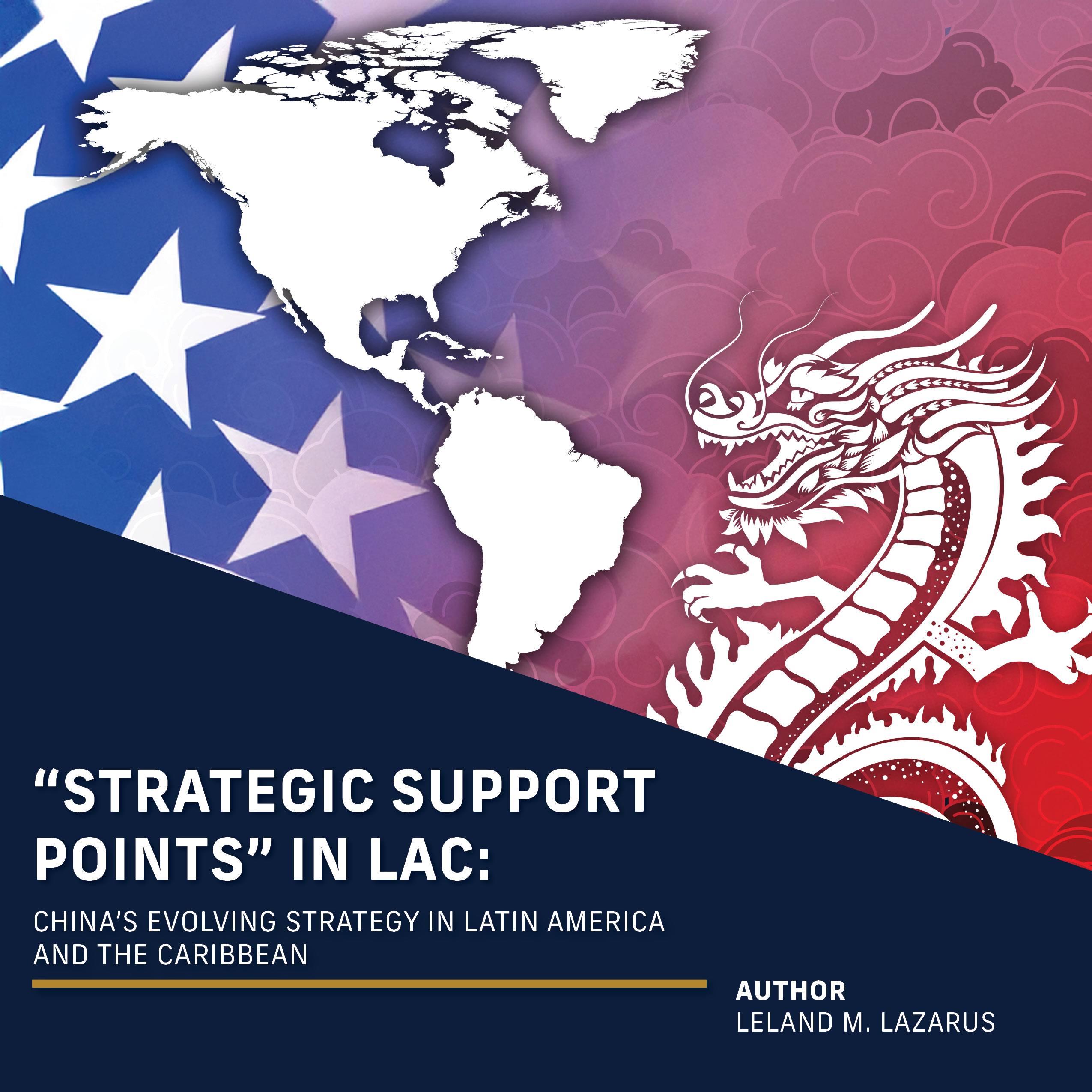
"Strategic Support Points" in LAC: China's Evolving Strategy in Latin America and the Caribbean
By: Leland M. Lazarus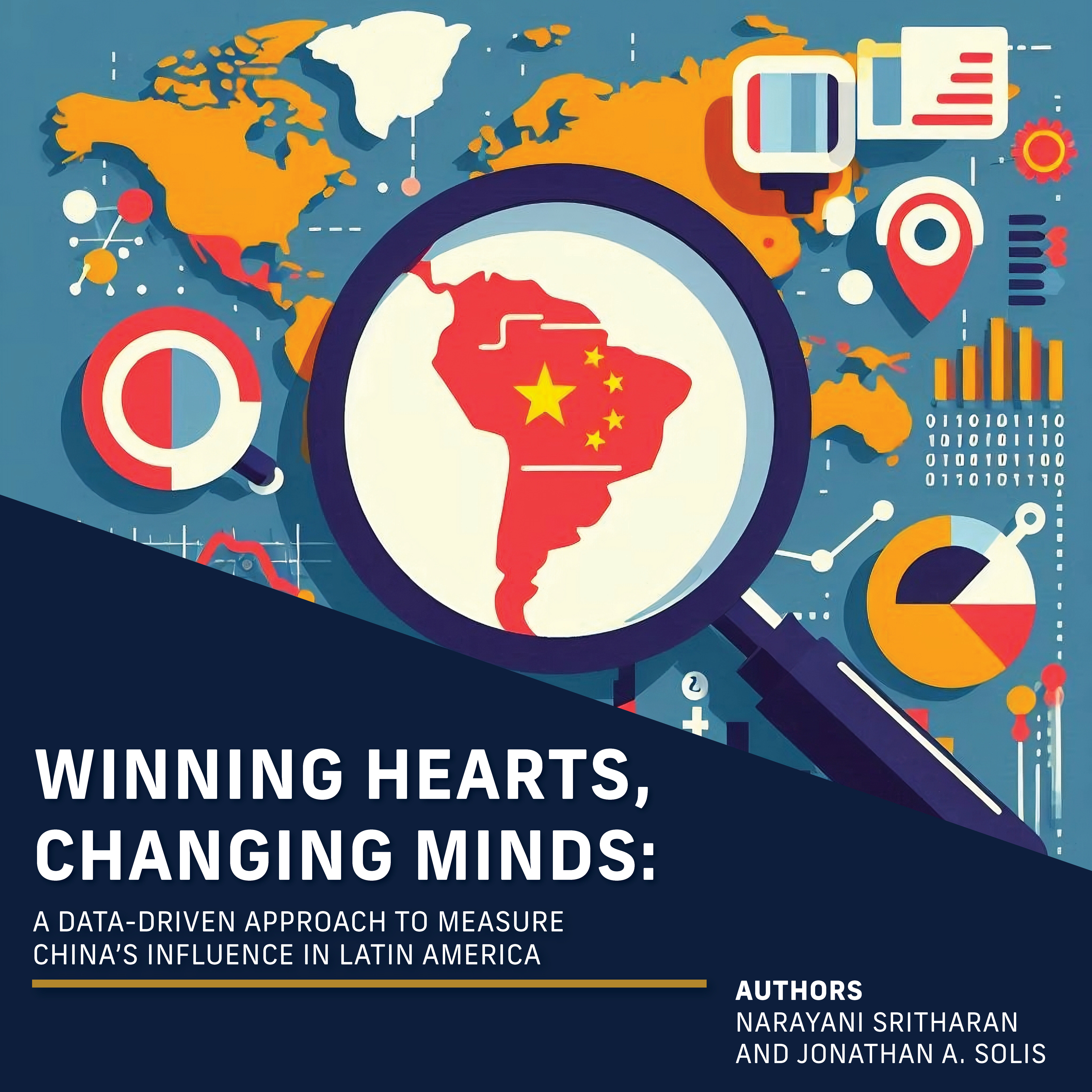
Winning Hearts, Changing Minds: A Data-Driven Approach to Measure China's Influence in Latin America
By: Narayani Sritharan and Jonathan A. Solis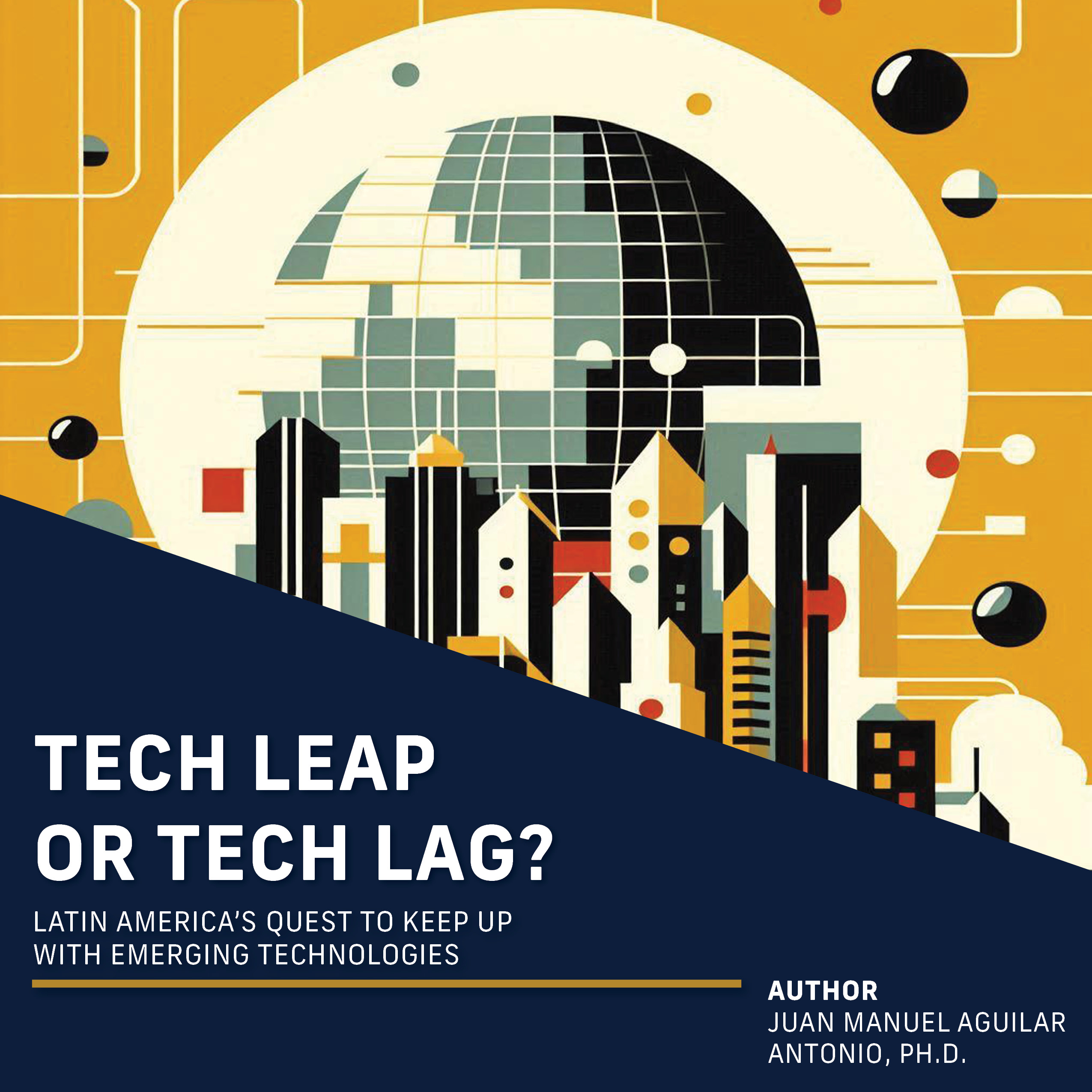
Tech Leap or Tech Lag: Latin America's Quest to Keep up with Emerging Technologies
By: Juan Manuel Aguilar Antonio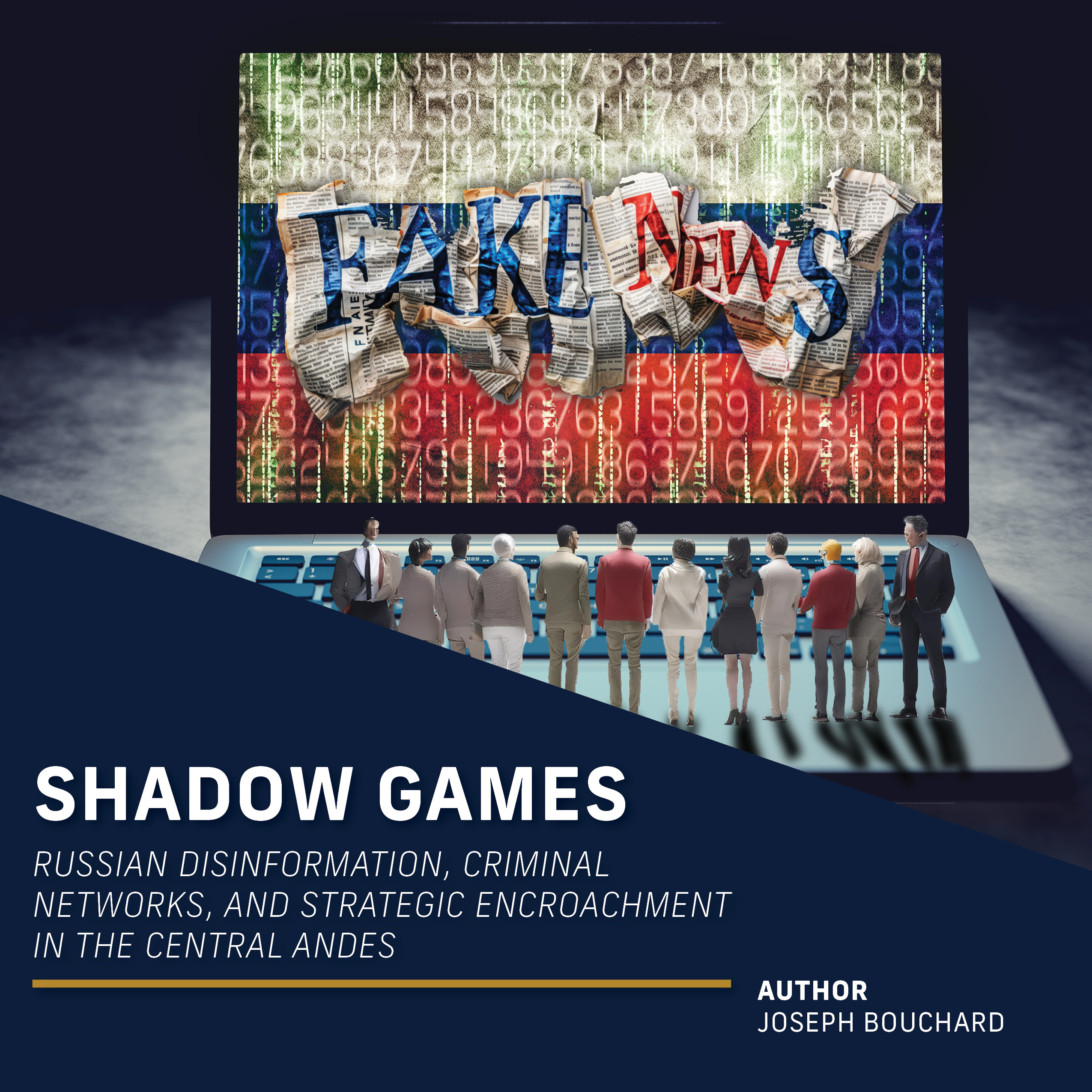 By: Joseph Bouchard
By: Joseph Bouchard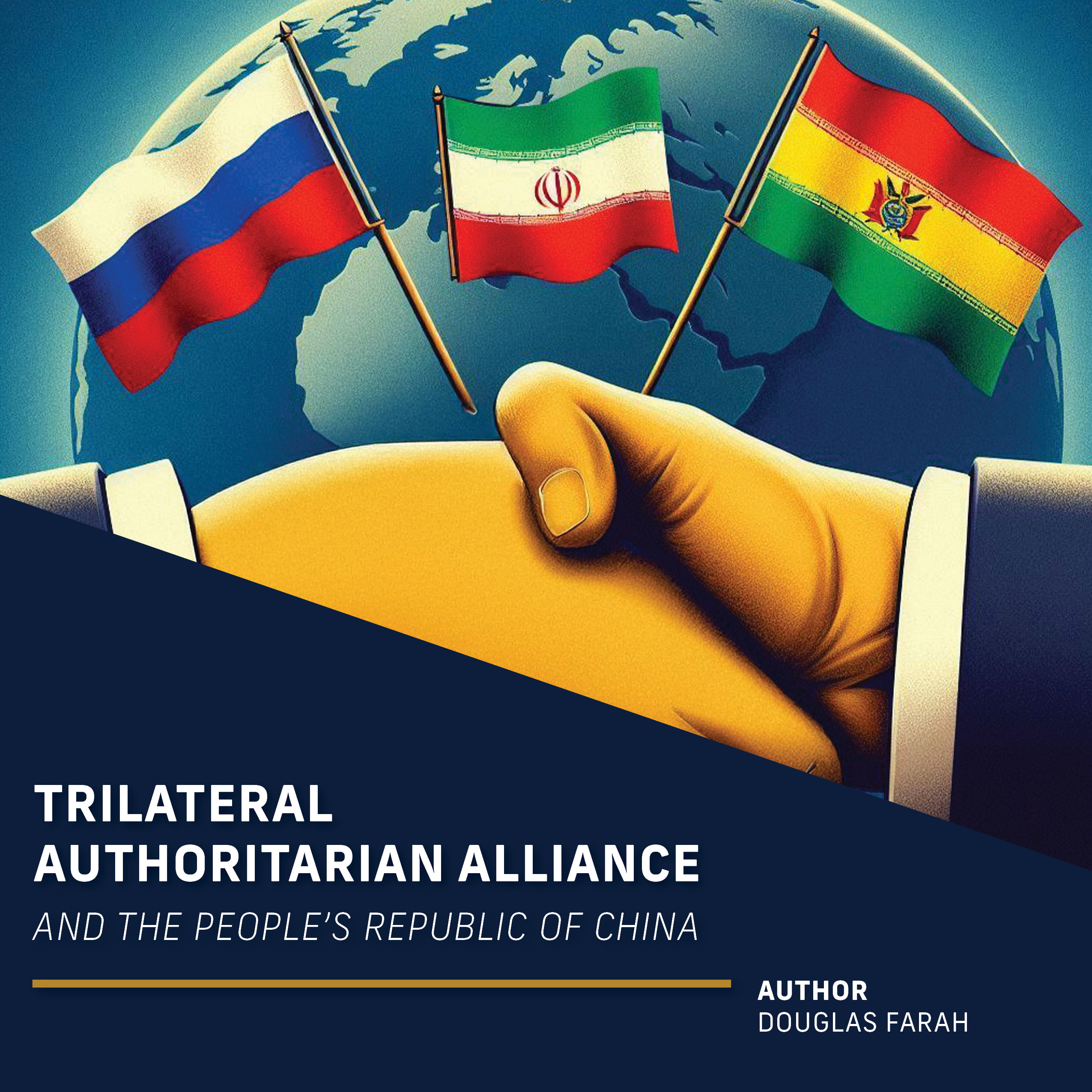
Trilateral Authoritarian Alliance: And the People's Republic of China
By: Douglas Farah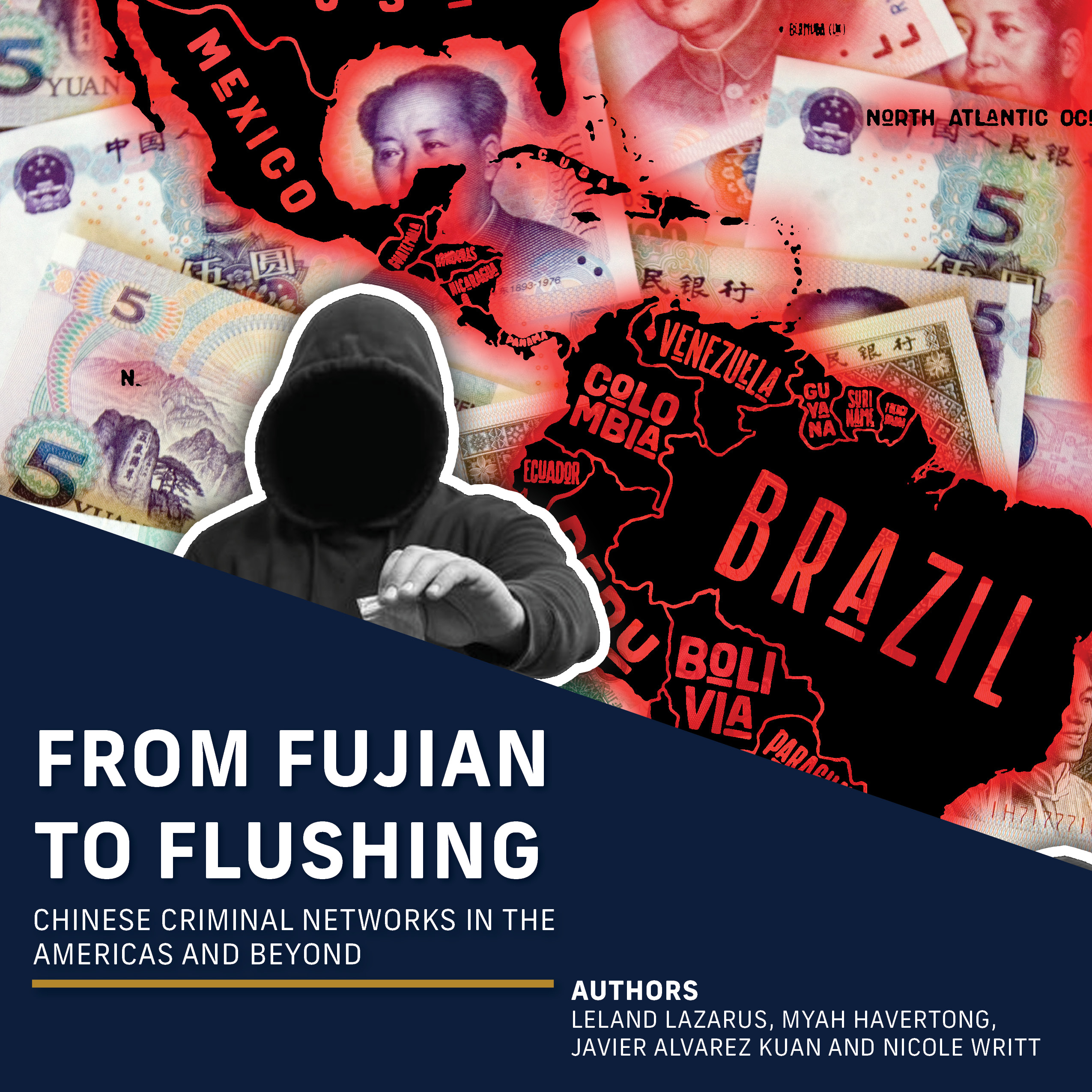
From Fujian to Flushing: Chinese Criminal Networks in the Americas and Beyond
By: Leland Lazarus, Myah Havertong, Javier Alvarez Kuan, Nicole Writt
Russia's Energy Interests in the Central Andes: Bolivia, Peru, and Ecuador
By: Joseph Bouchard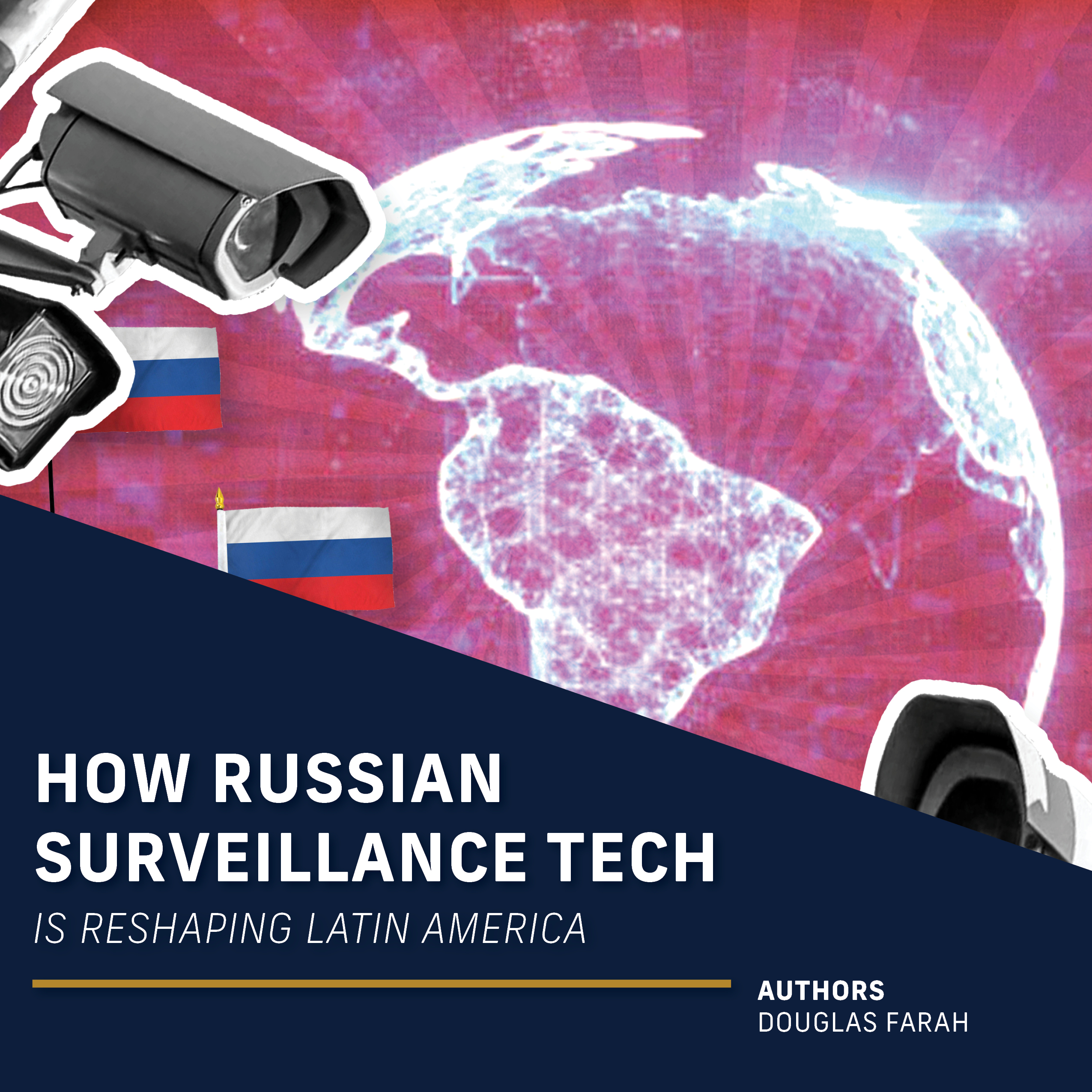 By: Douglas Farah
By: Douglas Farah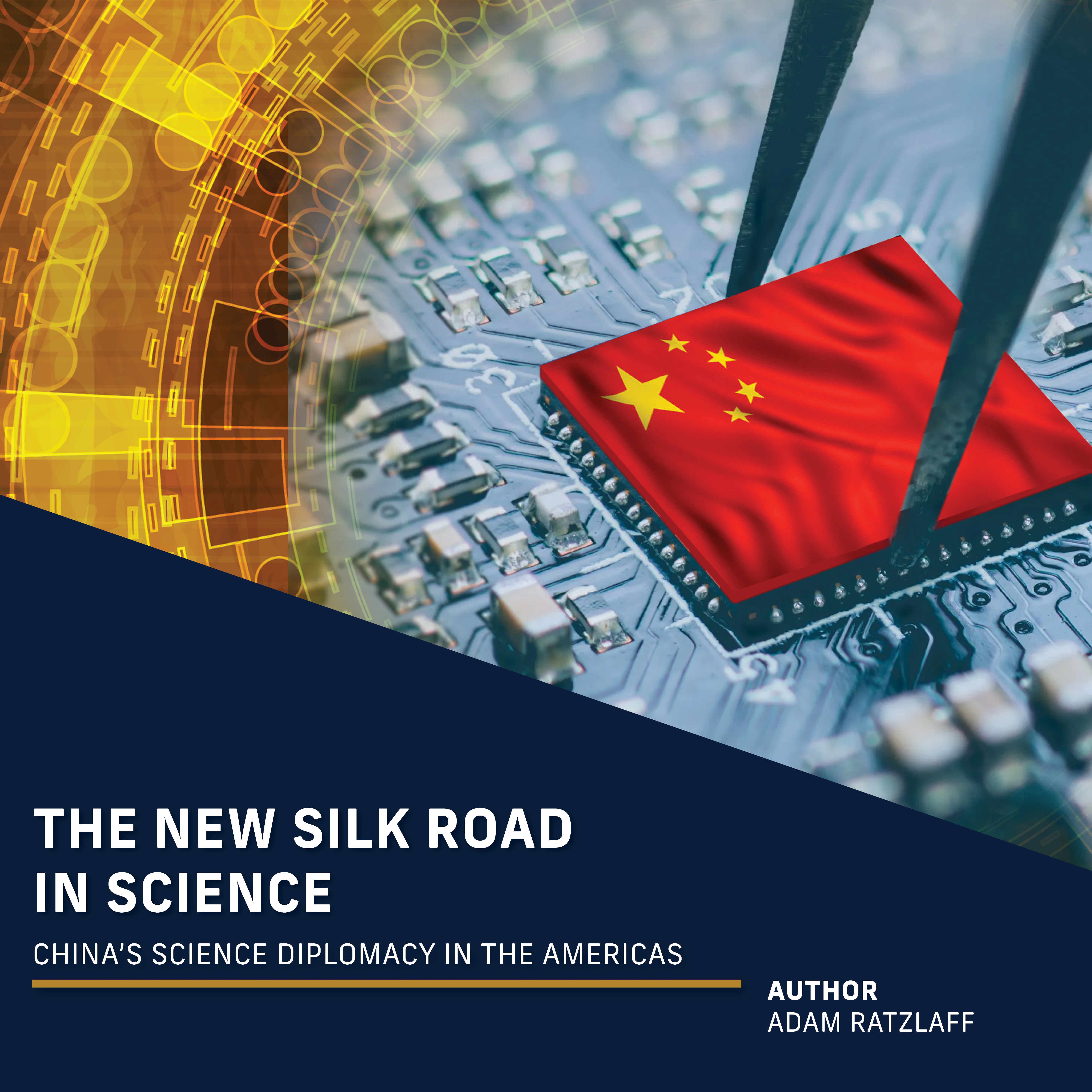
The New Silk Road in Science: China's Science Diplomacy in the Americas
By: Adam Ratzlaff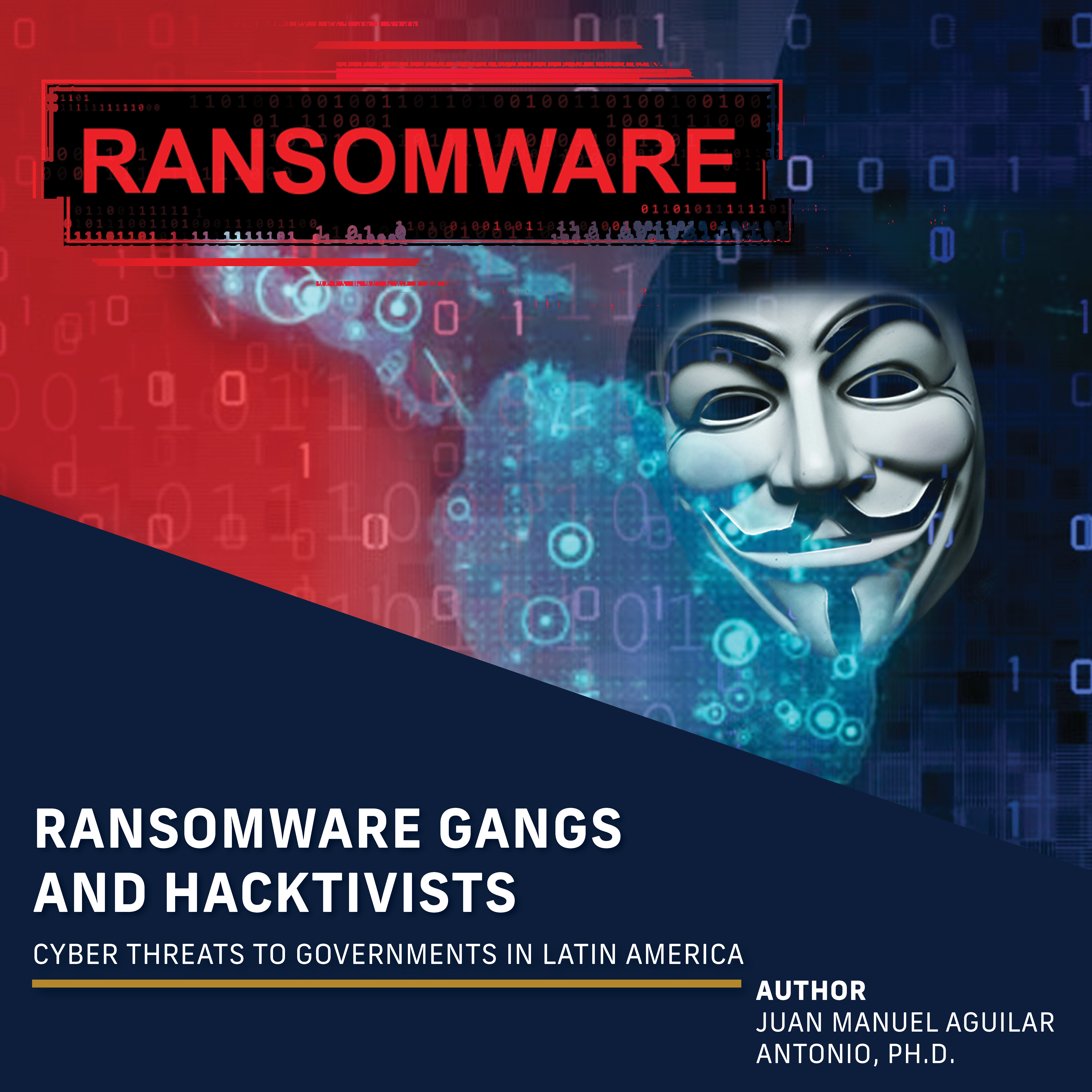
Ransomware Gangs and Hacktivists: Cyber Threats to Governments in Latin America
By: Juan Manuel Aguilar Antonio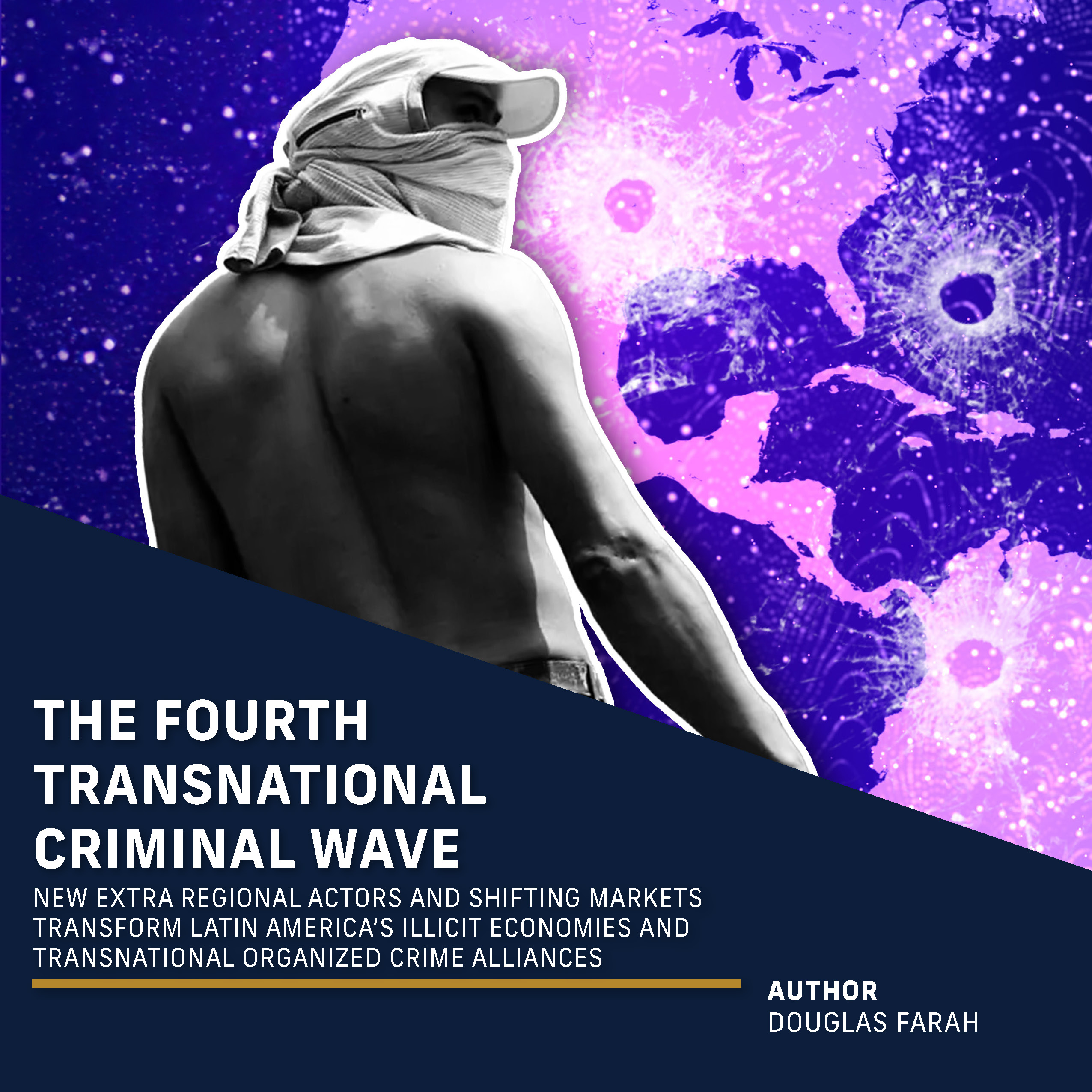 By: Douglas Farah
By: Douglas Farah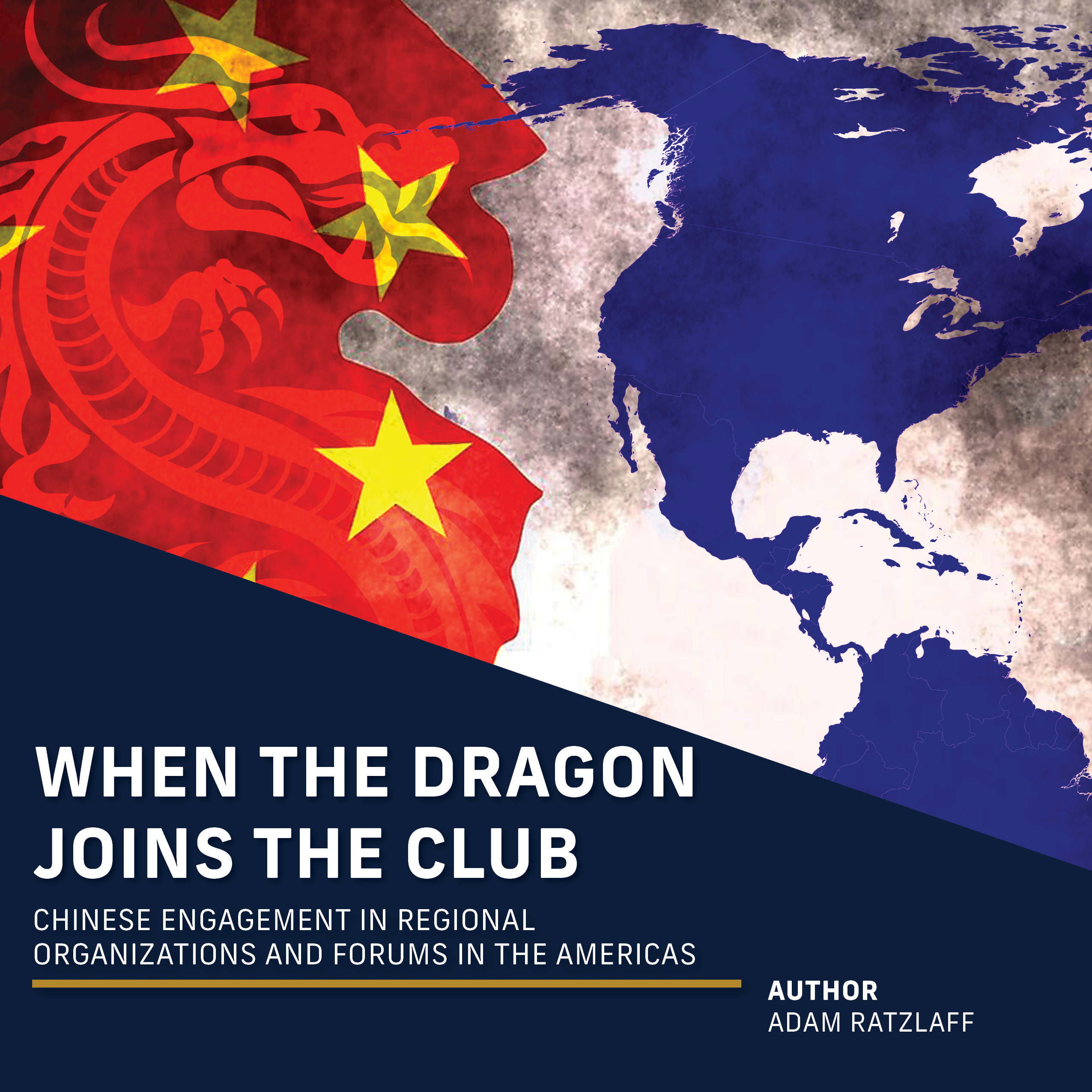 By: Adam Ratzlaff
By: Adam Ratzlaff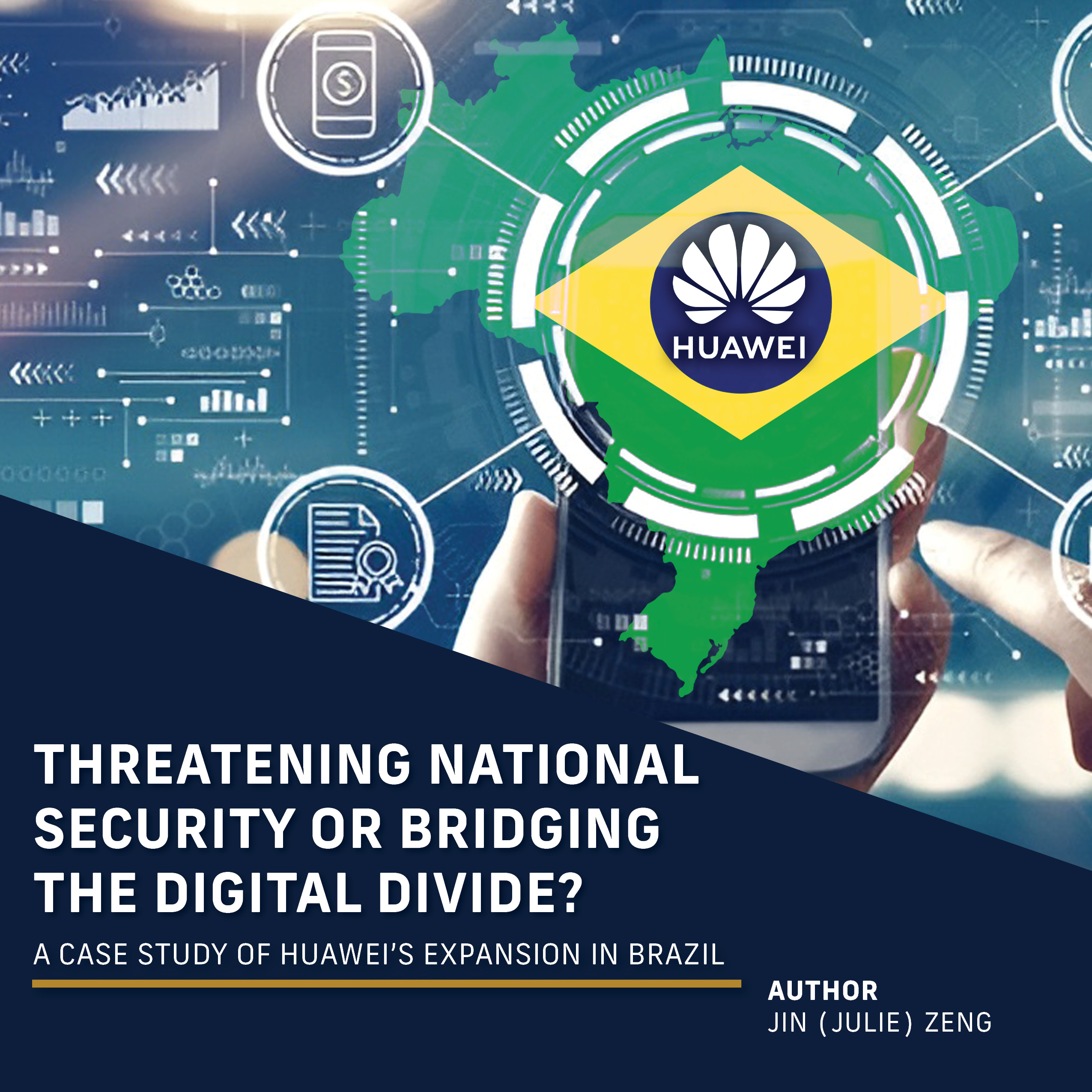 By: Jin (Julie) Zeng
By: Jin (Julie) Zeng By: Leland Lazarus and Robert Furton
By: Leland Lazarus and Robert Furton By: Fabiana Perera
By: Fabiana Perera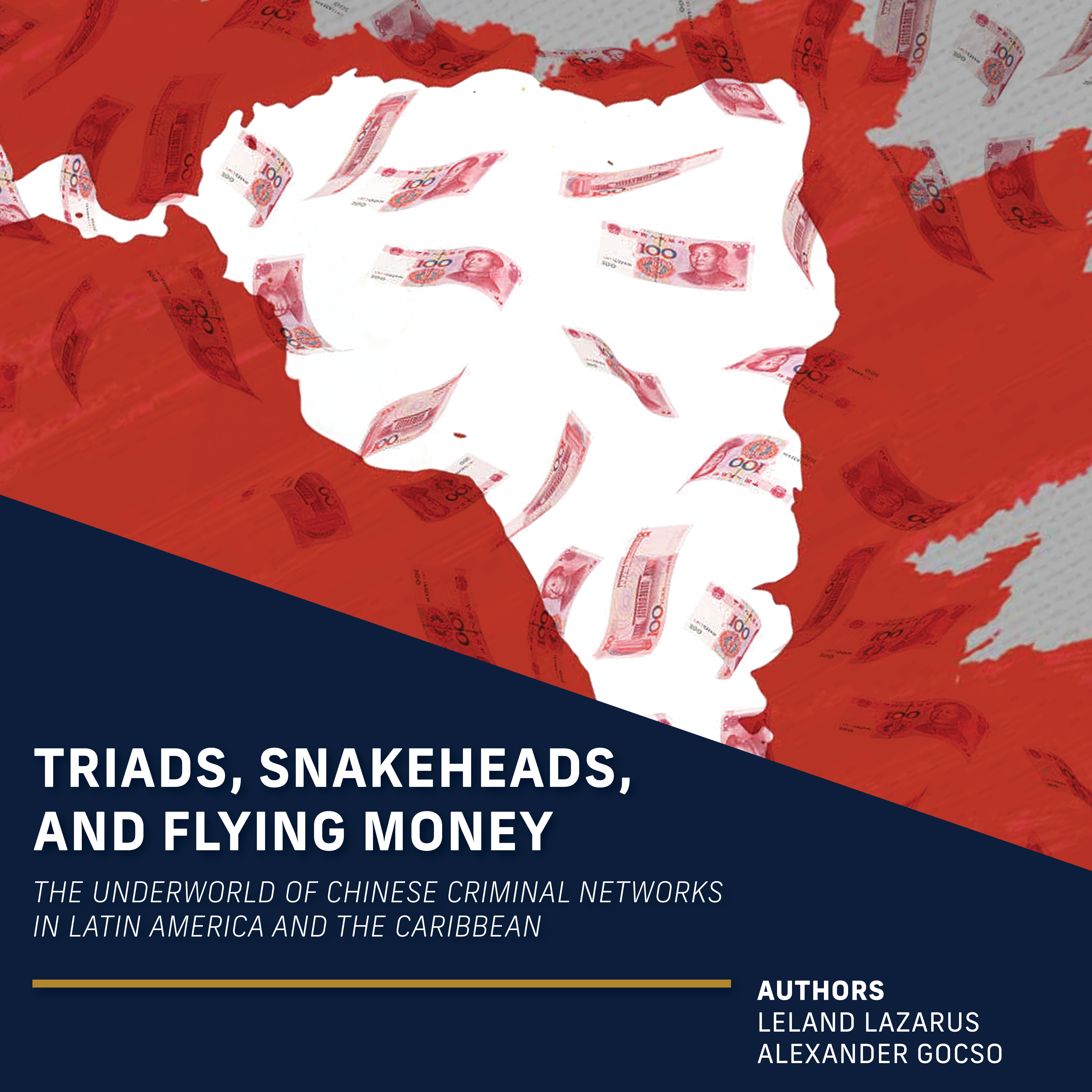 By: Leland Lazarus and Alexander Gocso
By: Leland Lazarus and Alexander Gocso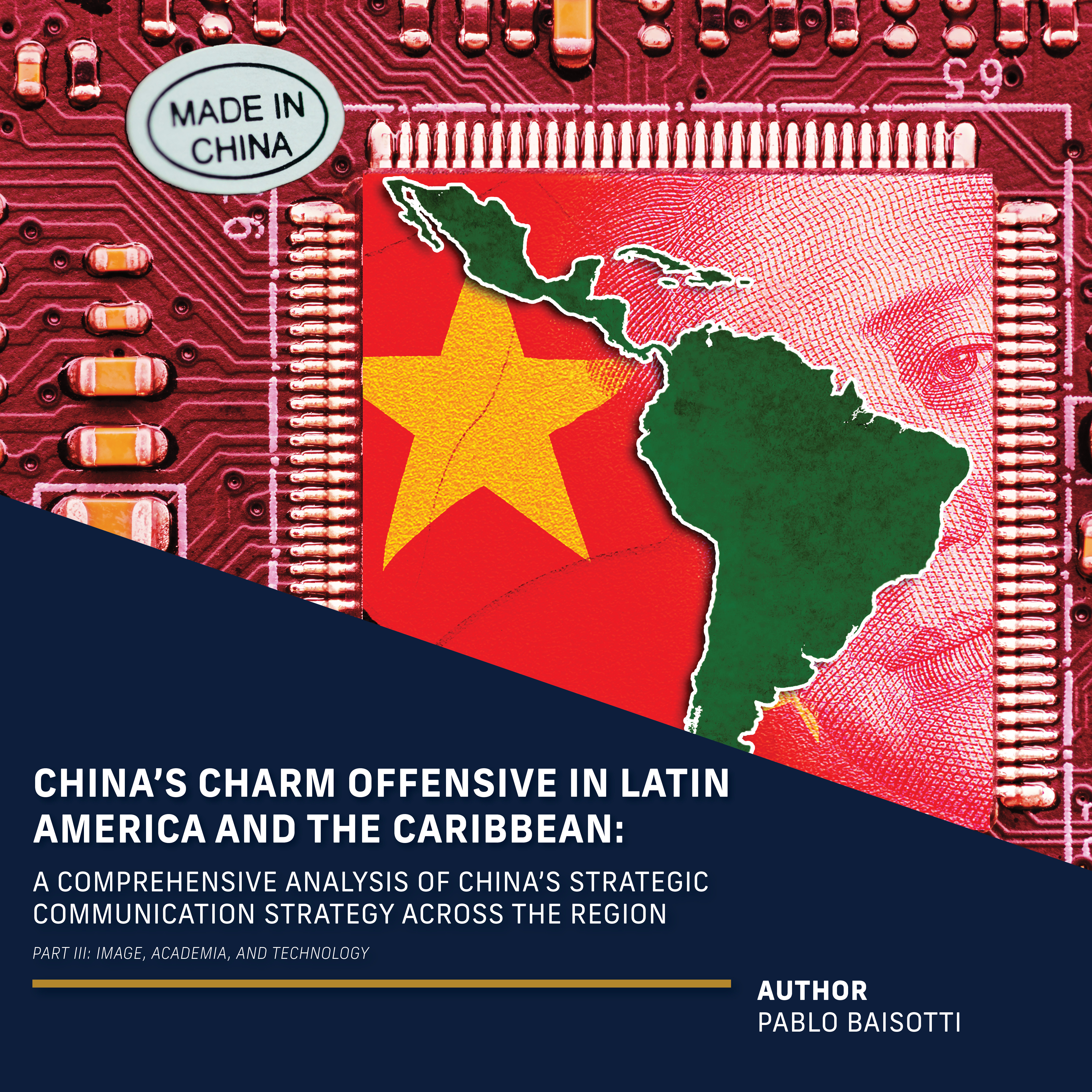 By: Pablo Baisotti
By: Pablo Baisotti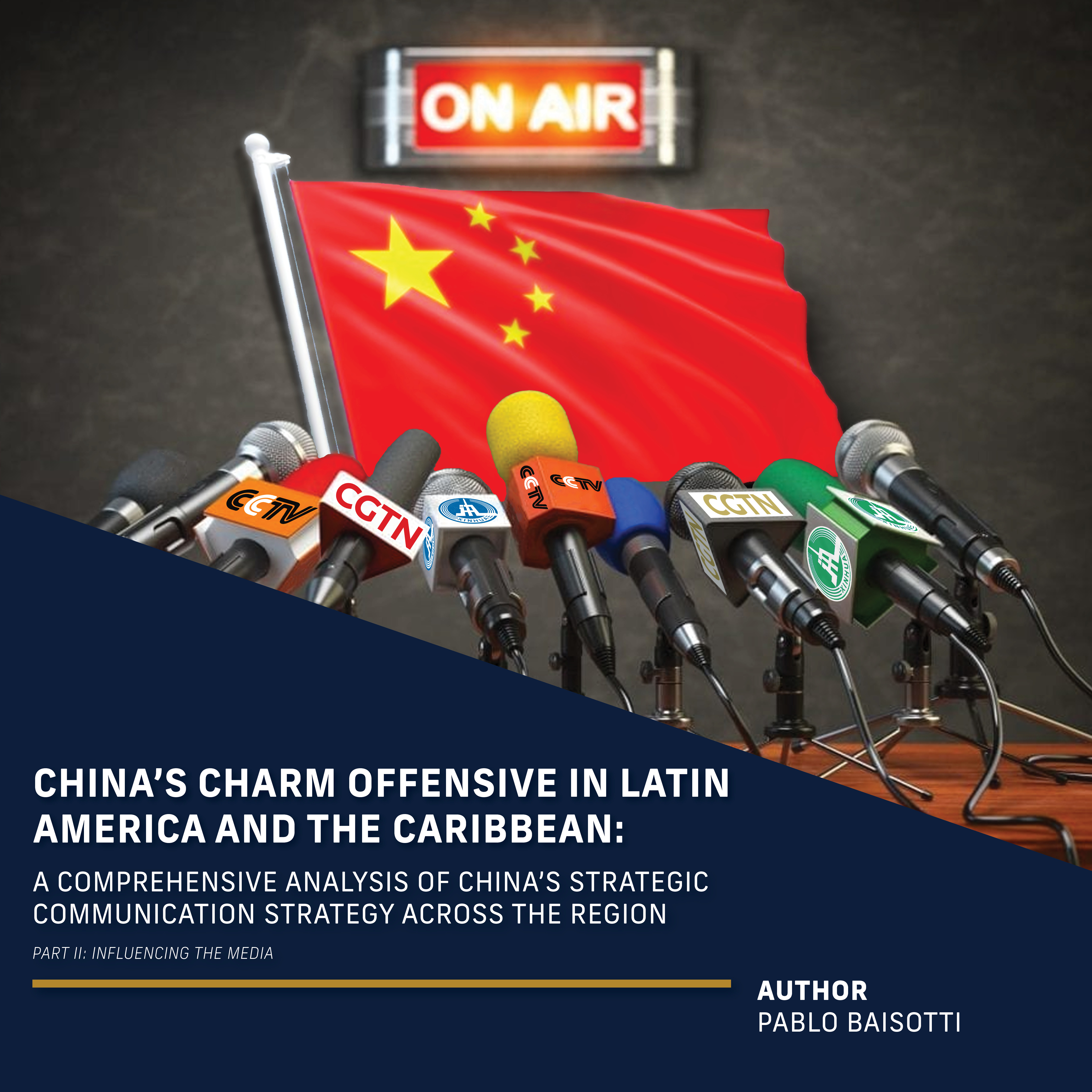
China's Charm Offensive in Latin America and the Caribbean [Part II: Influencing the Media]
By: Pablo Baisotti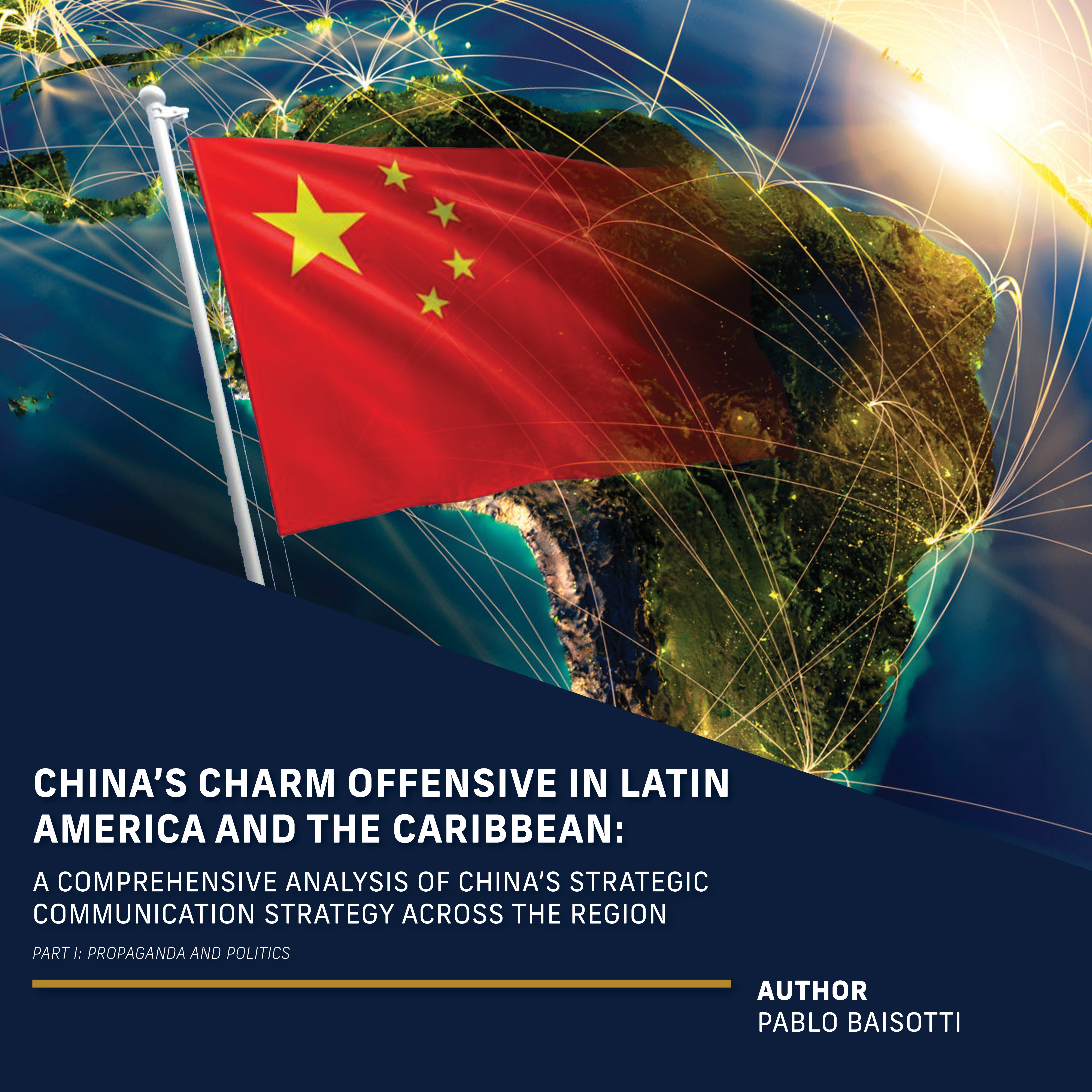
China's Charm Offensive in Latin America and the Caribbean [Part I: Propaganda and Politics]
By: Pablo Baisotti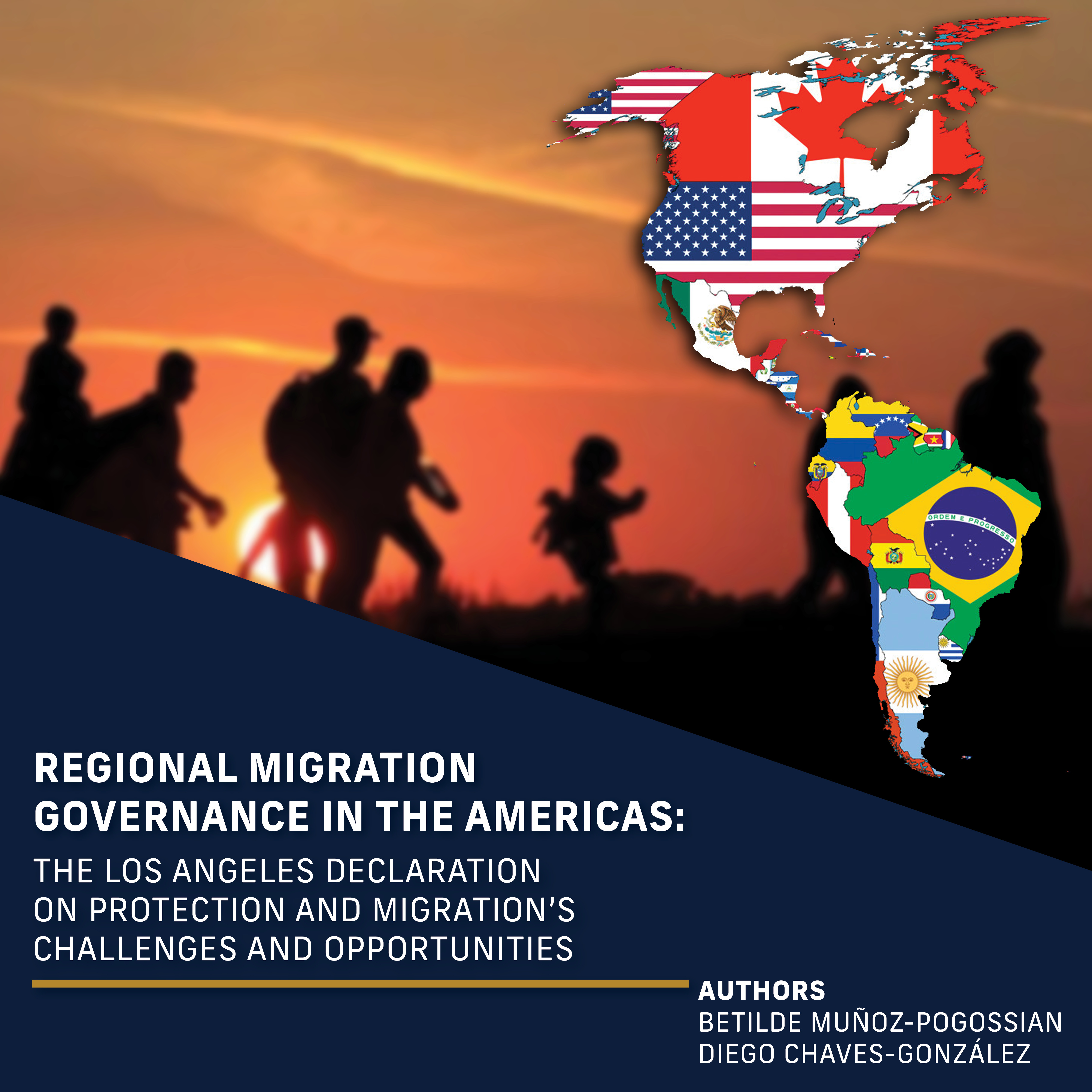 By: Betilde Muñoz-Pogossian and Diego Chaves-González
By: Betilde Muñoz-Pogossian and Diego Chaves-González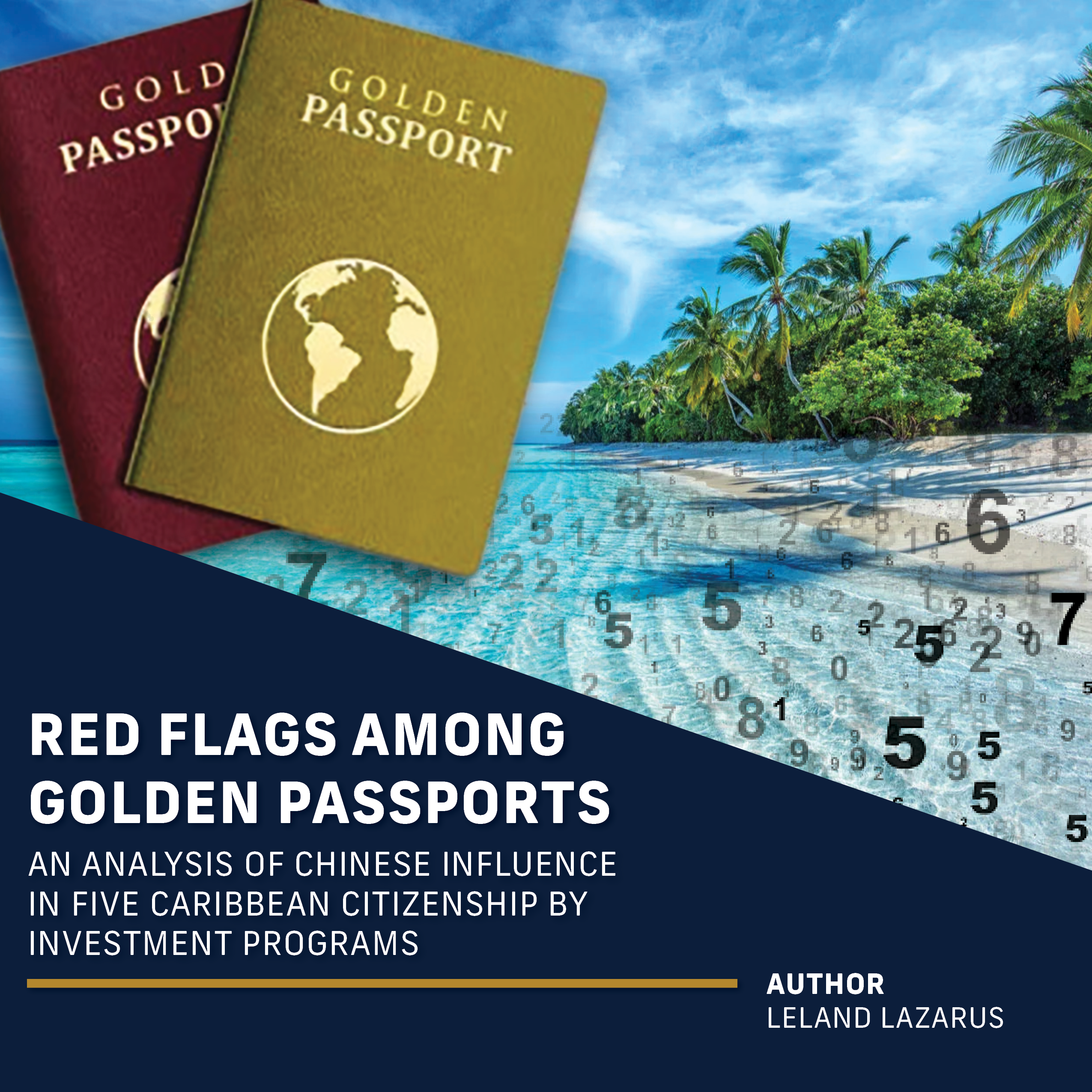 By: Leland Lazarus
By: Leland Lazarus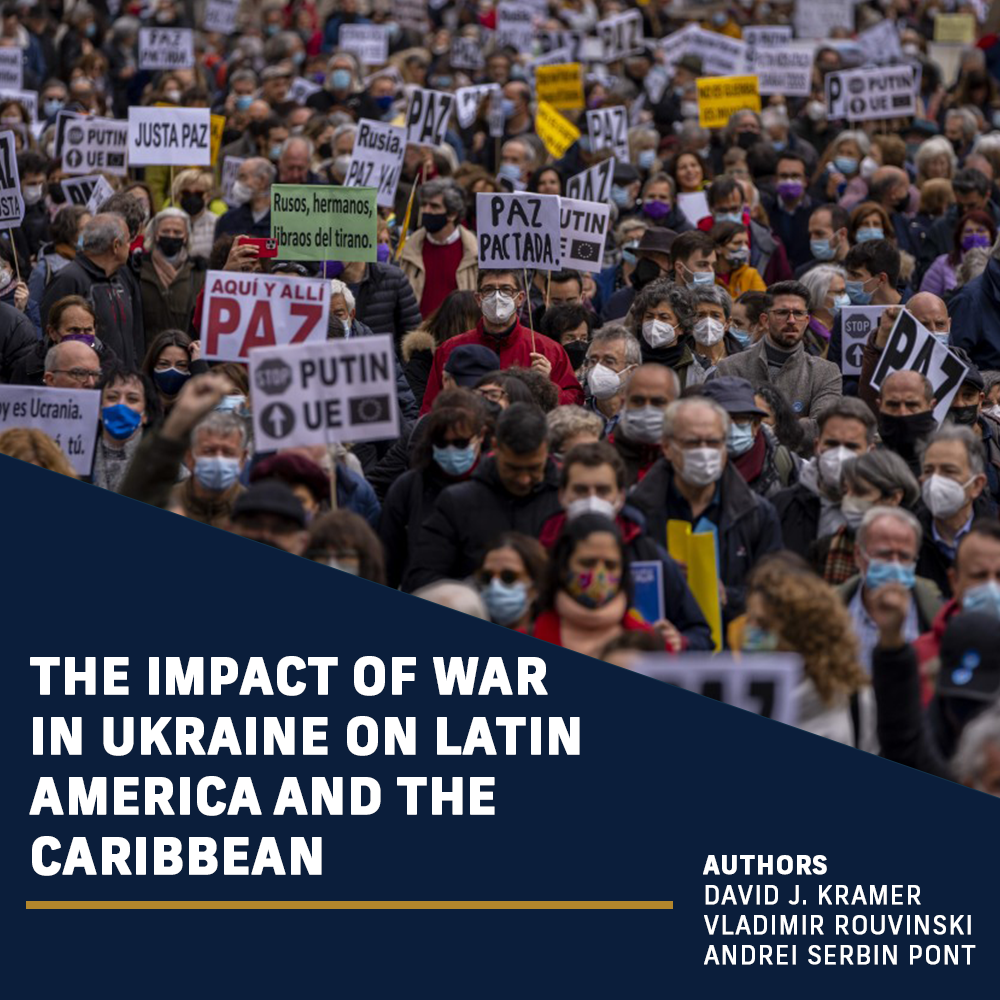
The Impact of War in Ukraine on Latin America and the Caribbean
By David J. Kramer, Vladimir Rouvinski, and Andrei Serbin Pont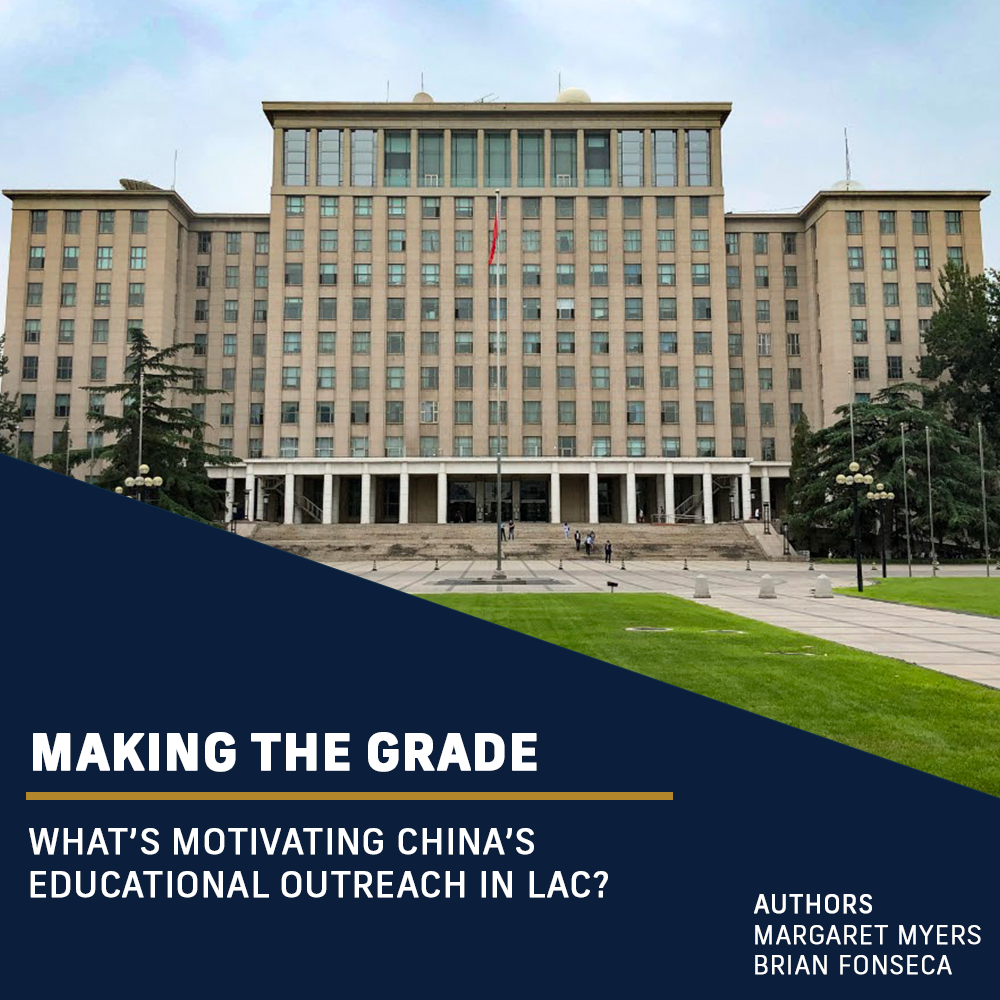
What's Motivating China's Educational Outreach in LAC?
By Margaret Myers and Brian Fonseca
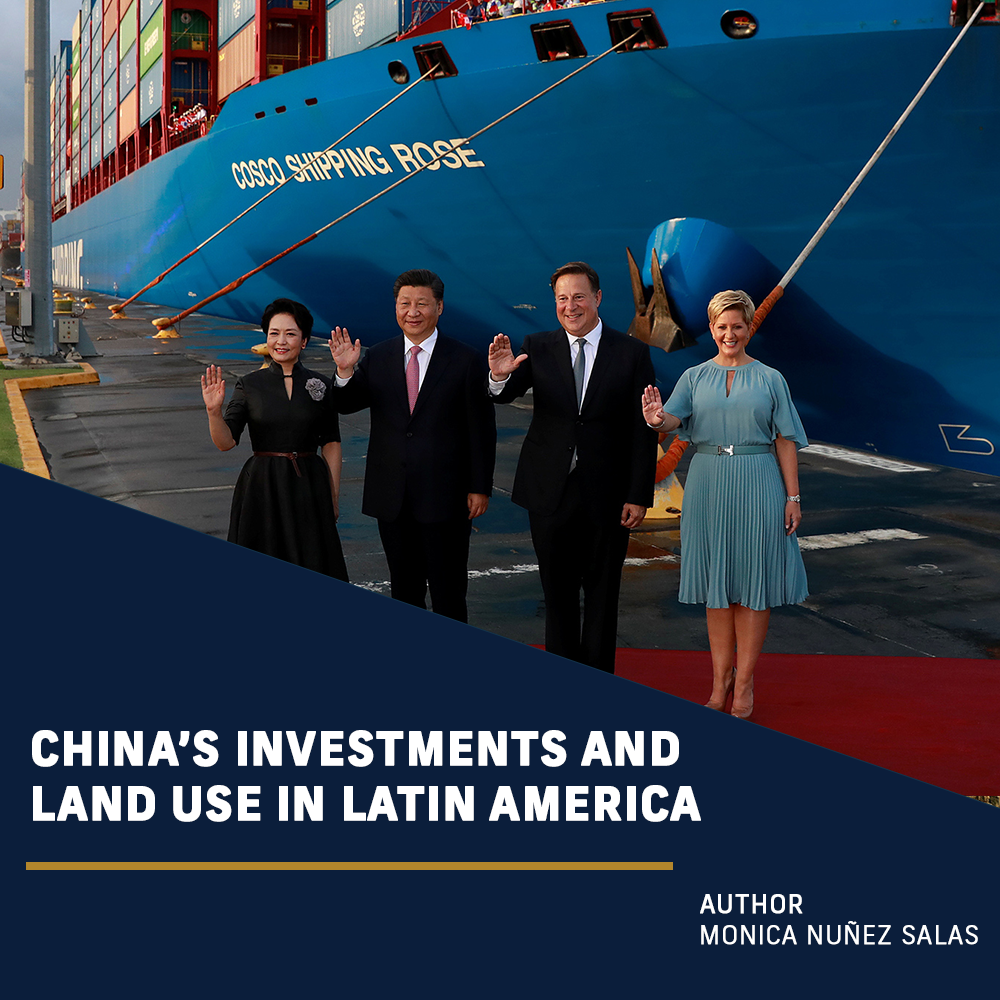
China's Investments and Land Use in Latin America
By Monica Nuñez Salas
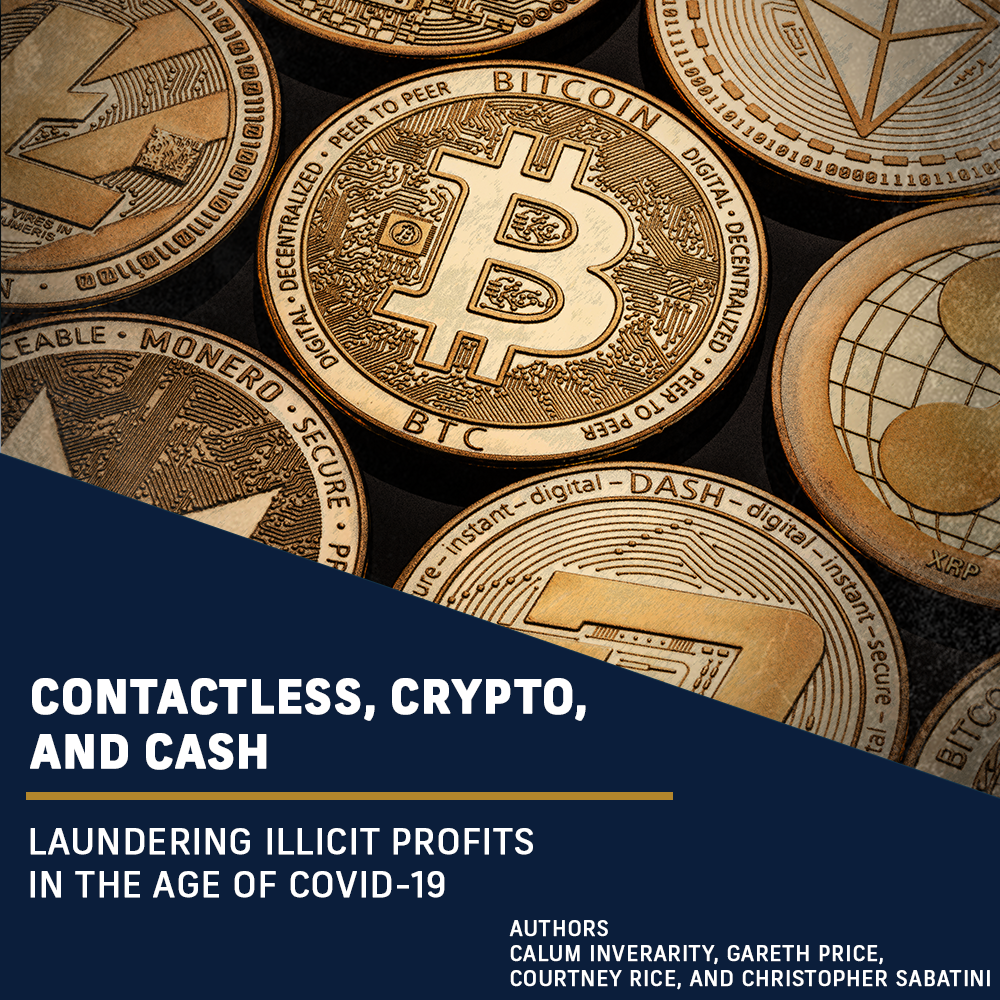
Laundering Illicit Profits in the Age of COVID-19
By Calum Inverarity, Gareth Price, Courtney Rice and Christopher Sabatini
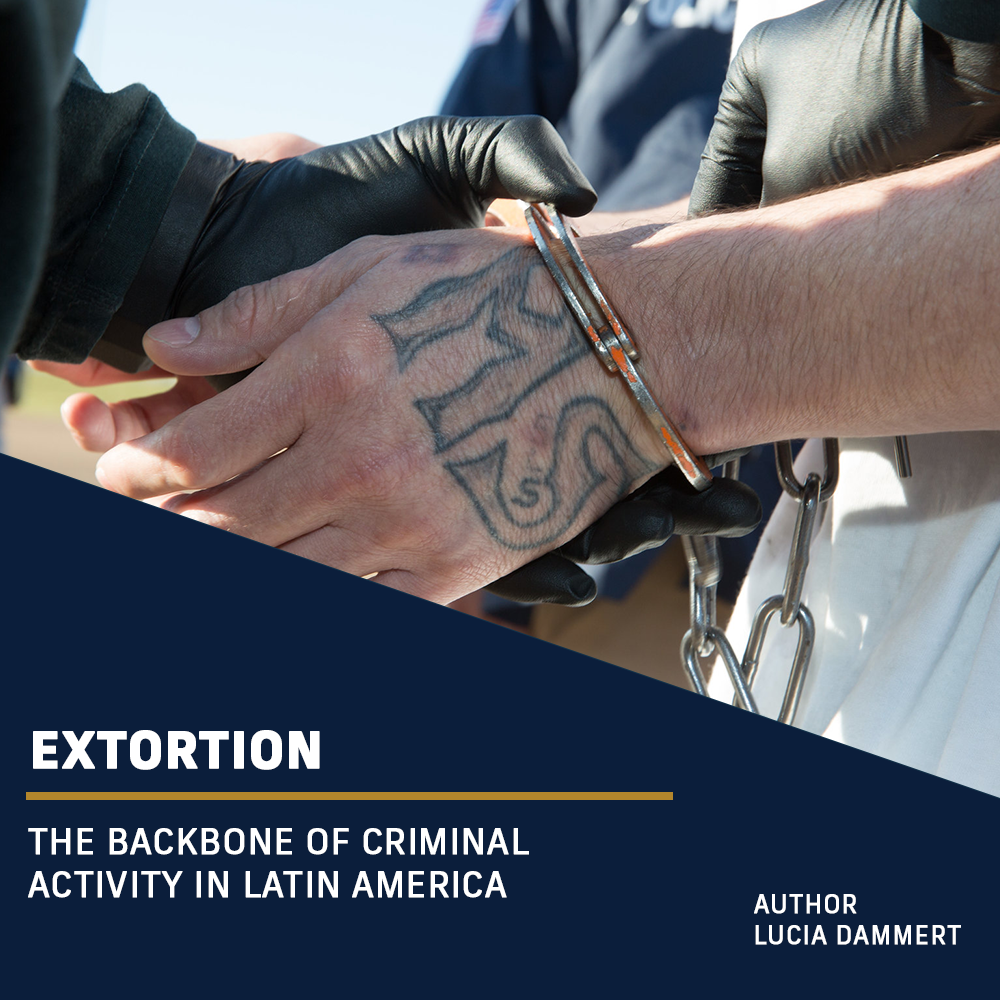
The Backbone of Criminal Activity in Latin America
By Lucia Dammert
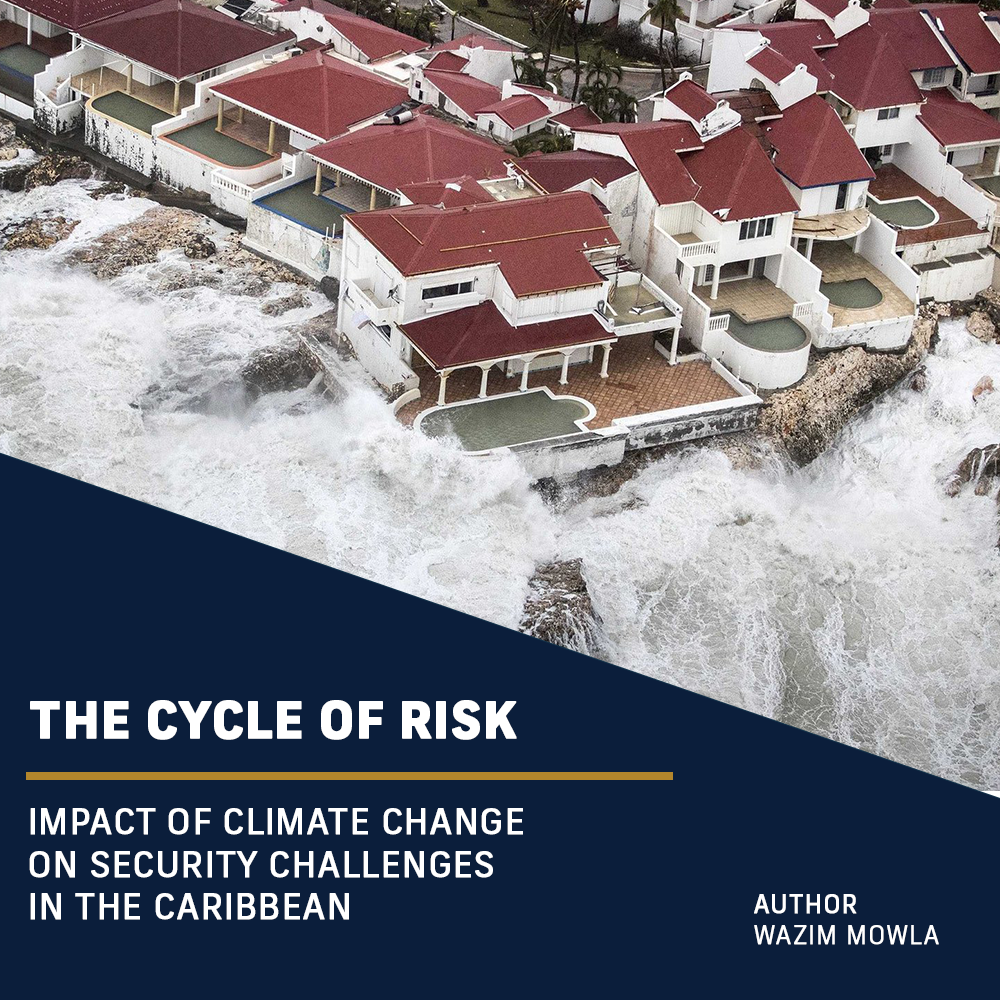
Impact of Climate Change on Security Challenges in the Caribbean
By Wazim Mowla
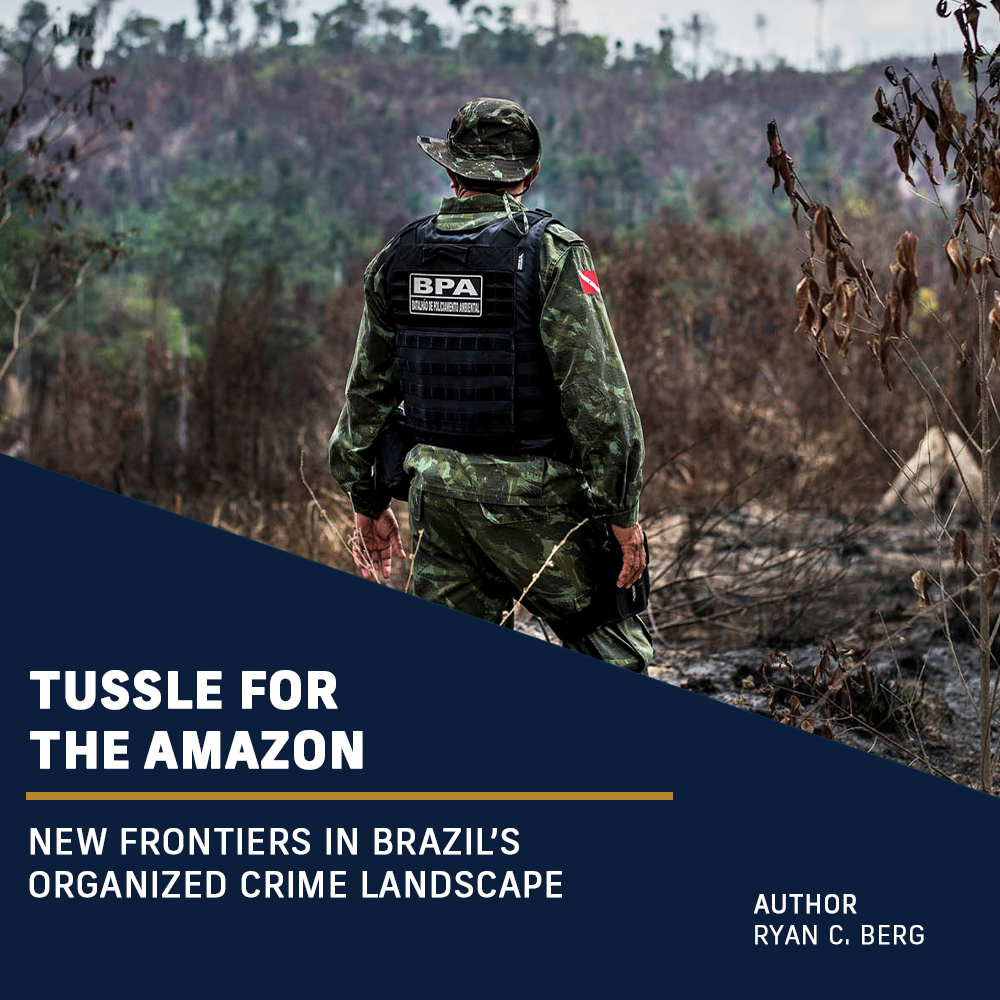
New Frontiers in Brazil's Organized Crime Landscape
By Ryan C. Berg
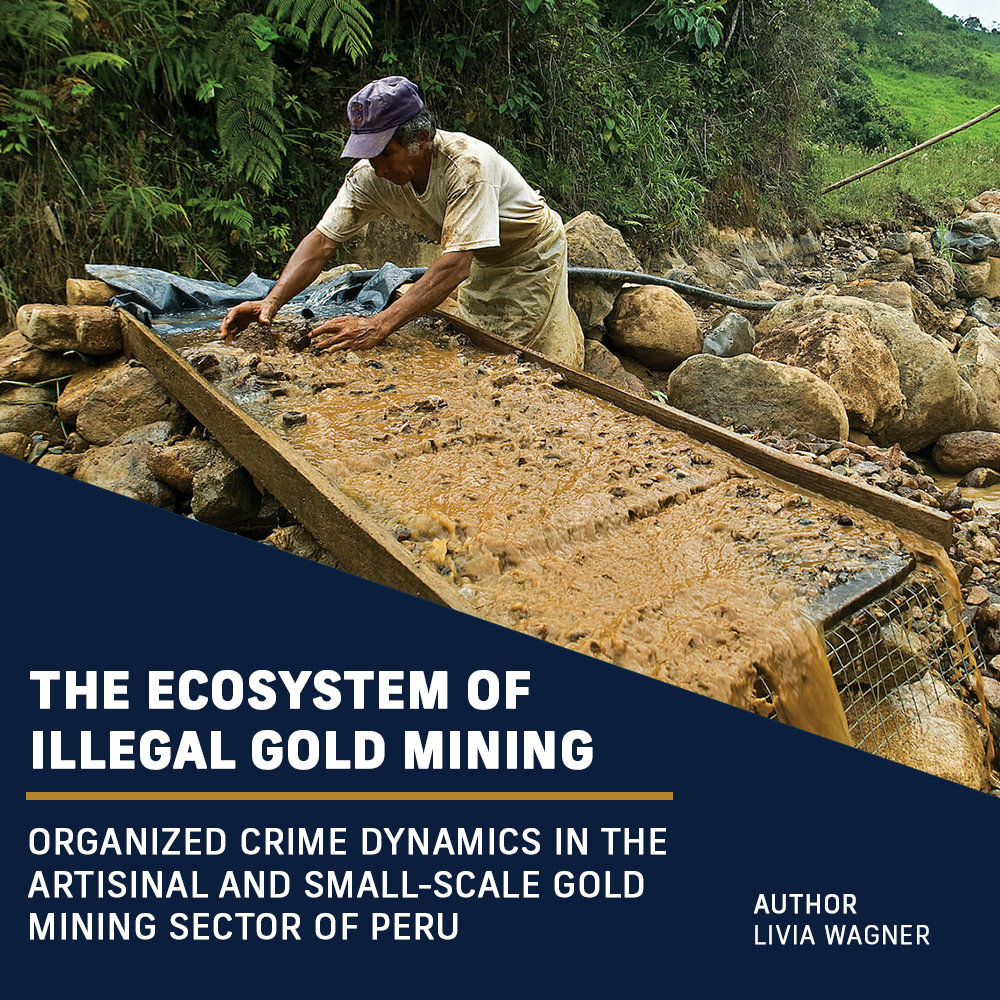
The Ecosystem of Illegal Gold Mining
Organized Crime Dynamics in the Artisinal and Small-Scale Gold Mining Sector
By Livia Wagner
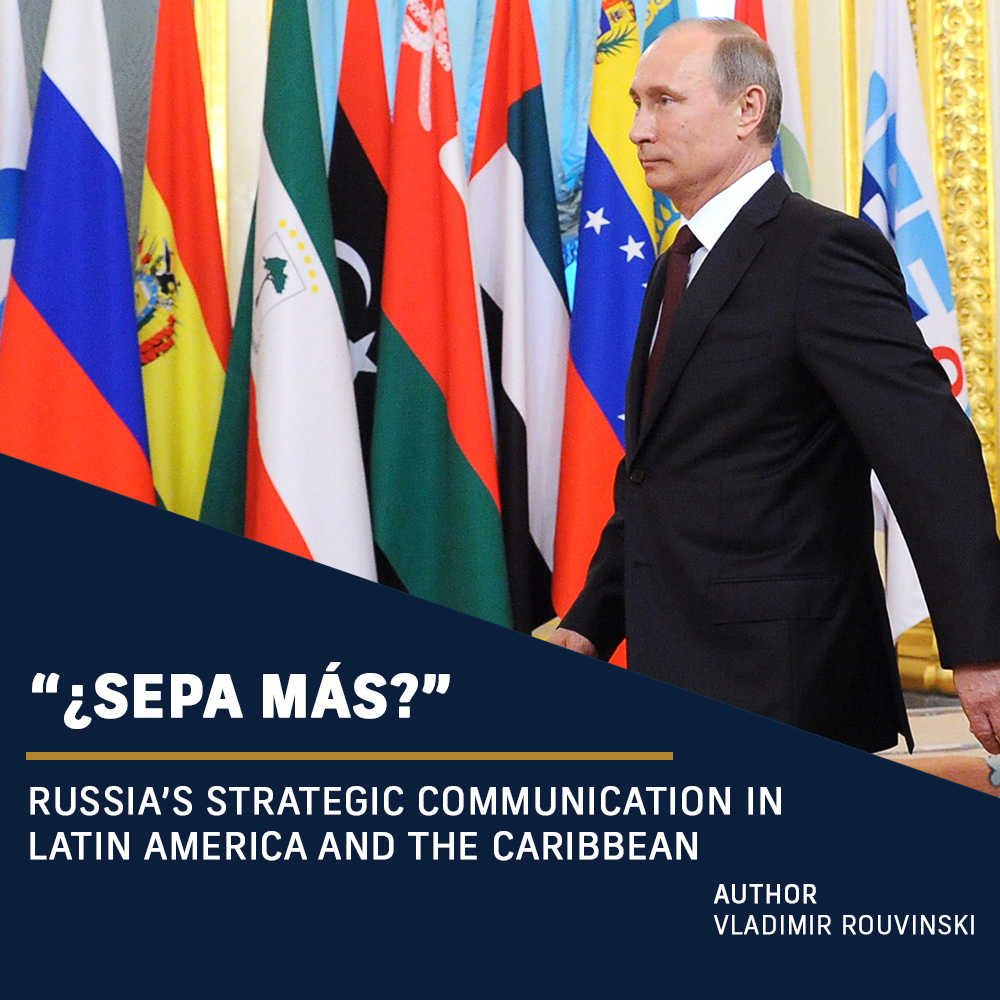
Russia's Strategic Communication in Latin America and the Caribbean
By Vladimir Rouvinski
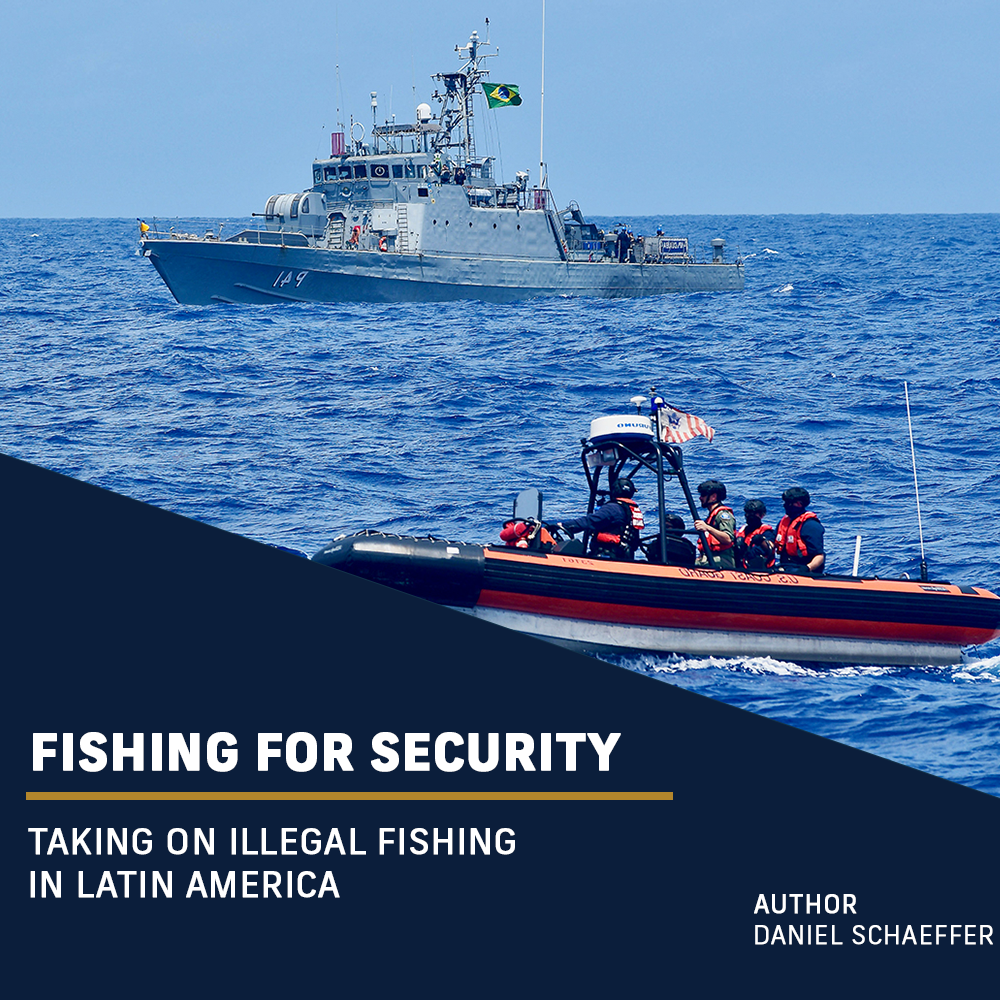
Taking on Illegal Fishing in Latin America
By Daniel Schaeffer
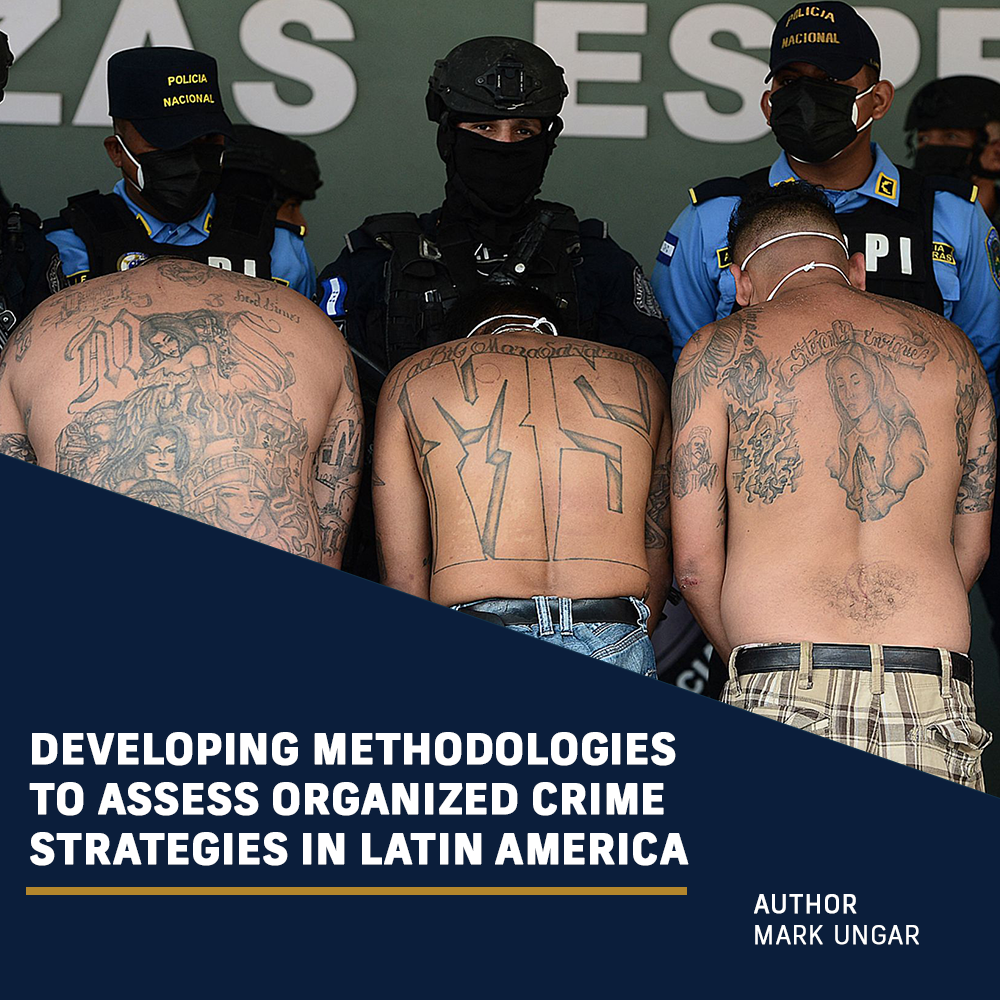
Developing Methodologies to Assess Organized Crime Strategies in Latin America
By Mark Ungar
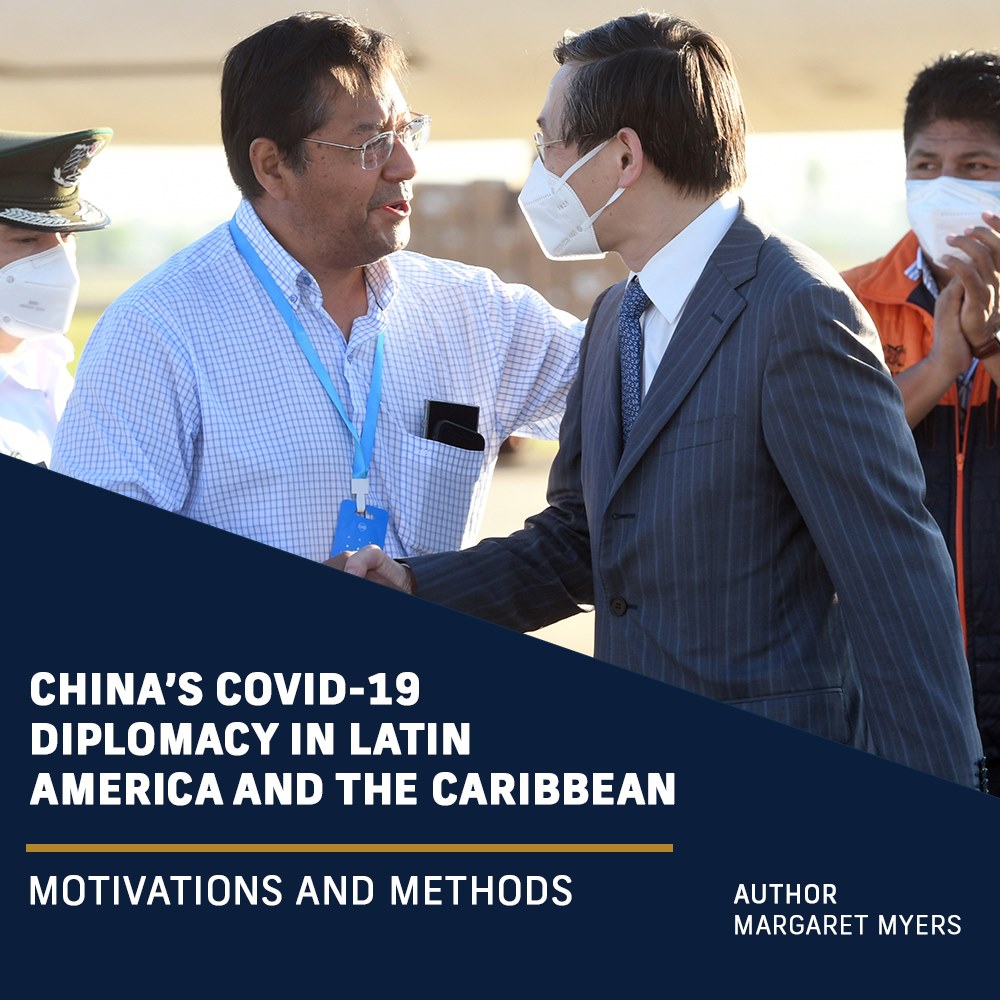
China's COVID-19 Diplomacy in Latin America and the Caribbean
Motivations and Methods
By Margaret Myers
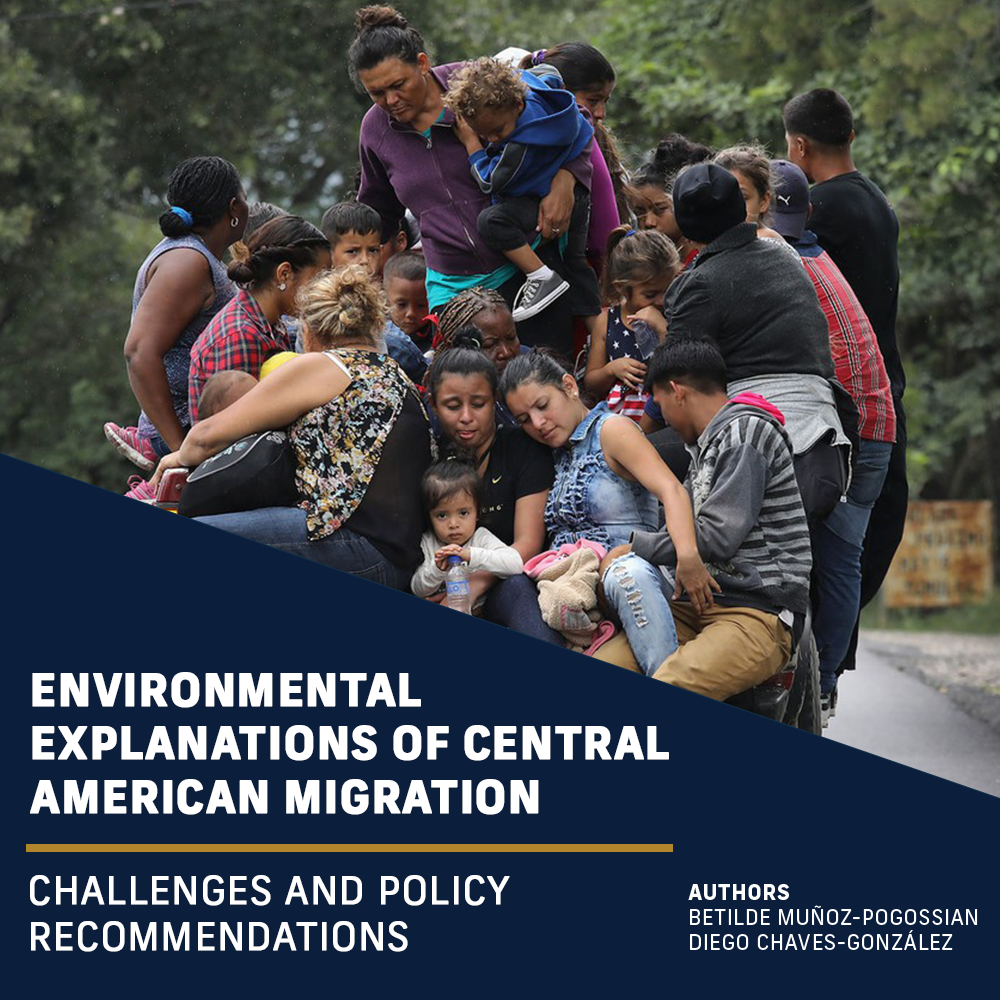
Environmental Explanations of Central American Migration
By Betilde Muñoz-Pogossian and Diego Chaves-Gonzalez
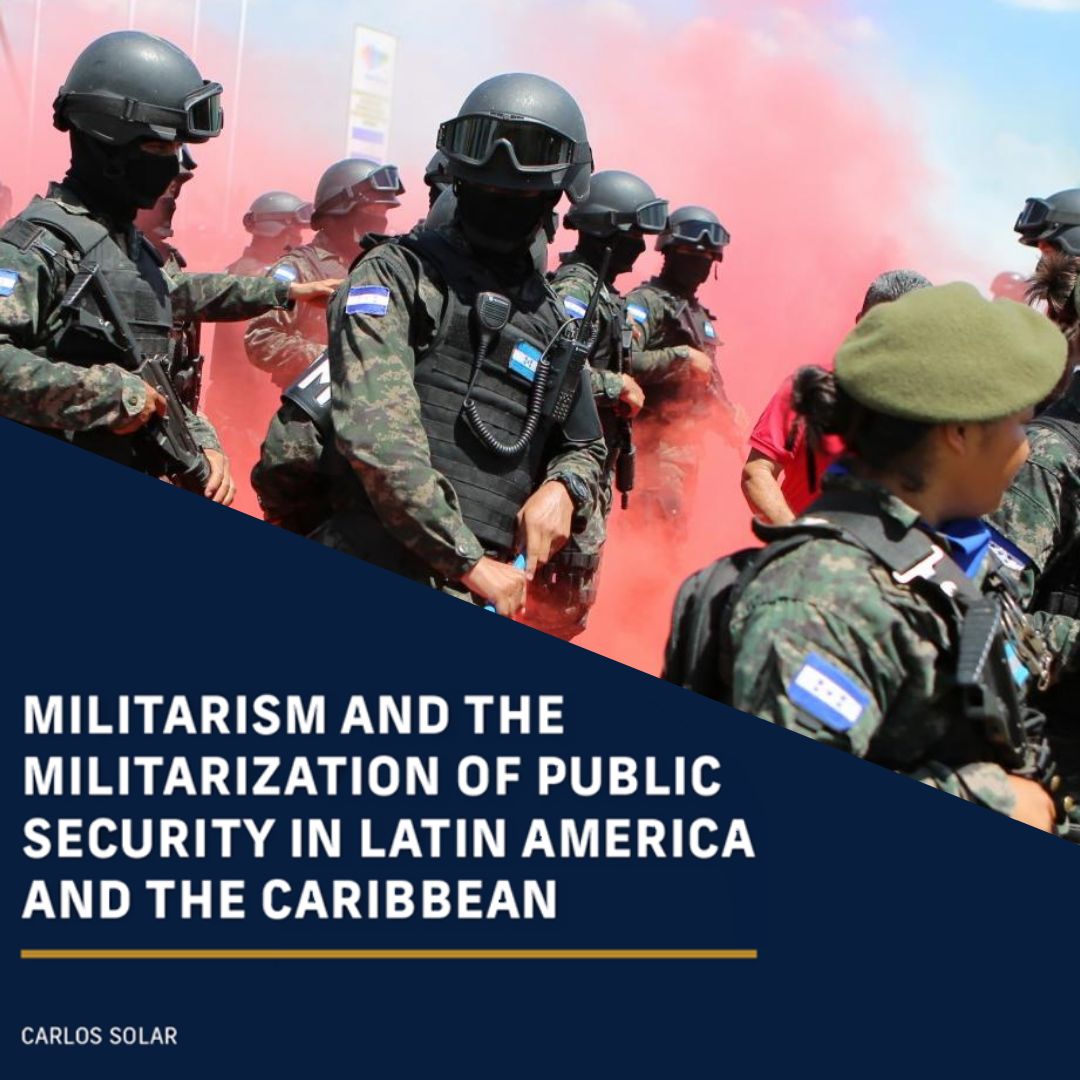
Militarism and the Militarization of Public Security in Latin America and the Caribbean
By Carlos Solar
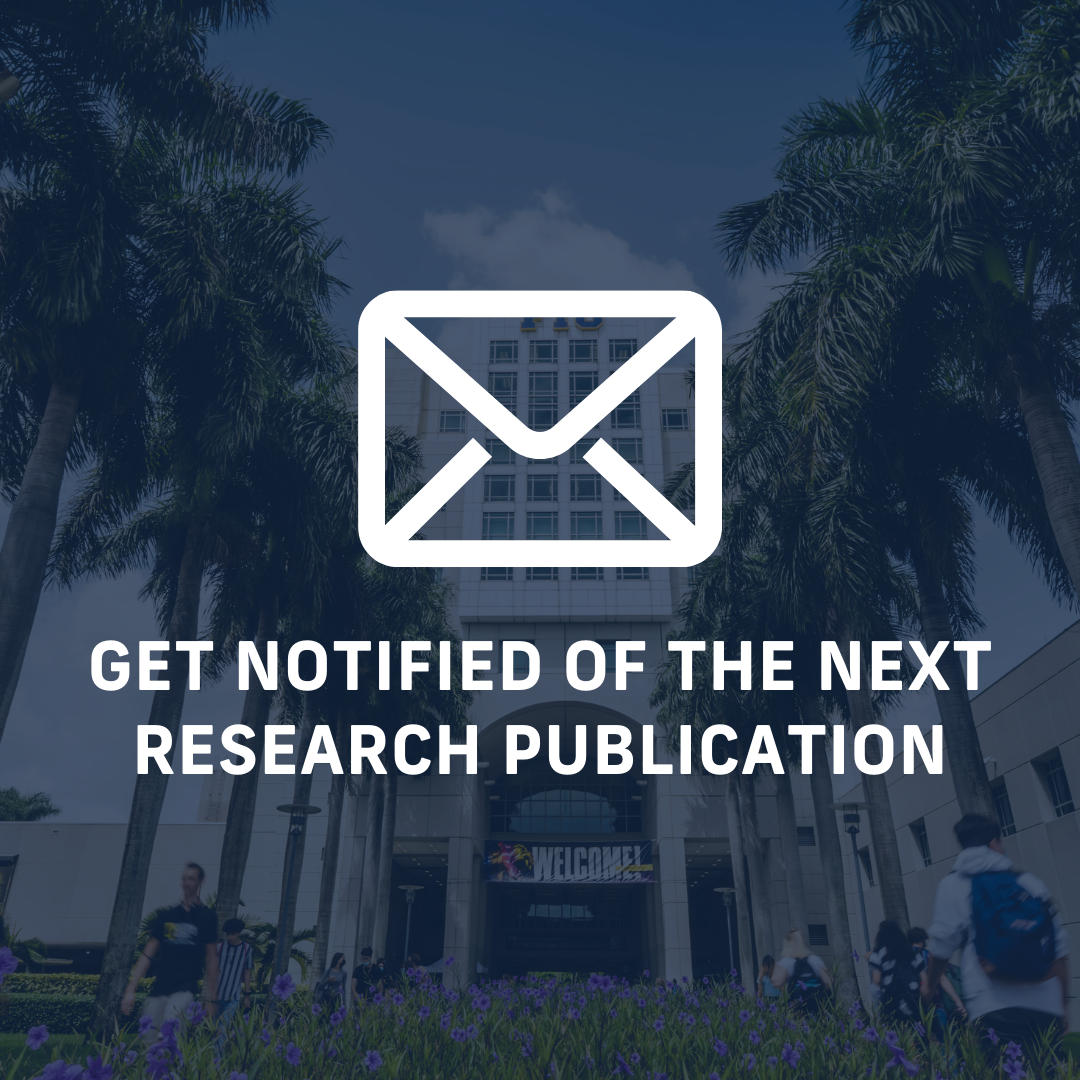
To access or purchase the publication, please click on the entry that you wish to view.
The Return of Geopolitics: Latin America and the Caribbean in an Era of Strategic Competition
By Ryan C. Berg and Hal Brands
With the advent of the Biden administration, it is clear the idea of focusing U.S. foreign policy on strategic competition enjoys widespread bipartisan support. U.S. statecraft is increasingly directed at the threats posed by powerful state rivals—especially China—as opposed to Salafi-Jihadist extremists and other non-state actors. Yet geopolitical rivalry is not simply something that happens over there in the Indo-Pacific, Europe, and the Middle East. It also happens over here, within the Western Hemisphere. As the United States enters a new period of geopolitical rivalry, it must update its understanding of strategic denial to fit the facts on the ground. This paper offers an intellectual starting point for that endeavor. It is intended to help the U.S. national security community think through the imperative of strategic denial and hemispheric defense in the twenty-first century.
By: Joy Olson and Eric L. Olson
This work briefly reviews the complex web of factors traditionally considered migration drivers. The authors’ interviews with migrants and their own work on anti-corruption efforts in Central America led them to hypothesize that something is missing from this traditional framework. Interviews with migrants in transit suggested that beyond any individual or combination of factors stood a profound lack of hope that the situation in their home country would improve.
Going Local: An Assessment of China’s Administrative-Level Activity in Latin America and the Caribbean | EXECUTIVE SUMMARY
Going Local: An Assessment of China’s Administrative-Level Activity in Latin America and the Caribbean | FULL REPORT
By: Margaret Myers
Local-level engagement is becoming an increasingly central feature of the broader China- LAC relationship, as Chinese central government, quasi-governmental, provincial, commercial and other actors seek to engage more extensively in LAC markets, shape external views of China, and advance China’s various policy objectives and political interests, including vis-à-vis Taiwan. Though prompted by Chinese government policy, the nature of this engagement is exceedingly wide-ranging, however, featuring a complex cast of generally uncoordinated characters with distinct interests and approaches. The outcomes at the subnational are also distinct. Some local-level partnerships have been exceedingly productive, resulting in numerous commercial deals and other forms of cooperation. Others have yet to produce concrete results, despite many years of exchange.
Venezuelan Migration Crisis: Medium and Long-Term Impacts
By: Betilde Muñoz-Pogossian and Paula García Tufró
The recent debate on Venezuela has primarily focused on the promotion of a political transition to reestablish a functioning democracy, respect for human rights, and restore a viable economy. However, the discussion and resulting actions should also focus on the need to address the medium to long term regional effects of the Venezuelan migration crisis. The human dimensions of the country’s protracted political, economic, and humanitarian crisis have been daunting, with 4.5 million Venezuelan migrants and refugees having fled their homeland between 2015 and 2019. This massive exodus is having the greatest impact on Latin American and Caribbean countries. The burden appears likely to intensify, moreover, as the number of displaced Venezuelans is projected to reach 6.5 million Venezuelans by the end of 2020.
This study focuses on how the exodus will impact the economic, social, security, and political standing of countries with the highest concentration of Venezuelan migrants—namely Argentina, Brazil, Chile, Colombia, Ecuador, and Peru.
The Evolution of Threat Networks in Latin America
By: Dr. Phil Williams and Dr. Sandra Quincoses
The economic and political environments in Latin America have been advantageous for local, regional, and transnational threat networks. Specifically, technology, increased international trade and economic interdependence, heightened interest in natural resources for profit, synthetic drug production, economic disparities, corruption, impunity, and unstable political conditions have led to a complex web of opportunities that requires new, progressive ways to address criminal activities. The creativity of threat networks along with their entrepreneurial strategies have resulted in increasing power and influence. Despite efforts by the United States and some governments in Latin America to combat these networks, the everchanging global environment has worked in their favor. Indeed, some countries in Central and South America are in danger of transforming into what Jorge Chabat described as “criminally possessed states.” Furthermore, gangs in Central America, especially in Honduras where MS-13 has become more closely linked to drug trafficking, have reduced local extortion, become more aware of their nascent political power and have even engaged in rudimentary social welfare provision.
Back In Power? Brazil's Military Under Bolsonaro
By: Roberto Simon and Brian Winter
It would not be an exaggeration to say that the 2018 election of Jair Bolsonaro represented the biggest shock to civil-military relations in Brazil in the last 40 years. Bolsonaro, a former Army captain who campaigned on a platform of dictatorship nostalgia amid the country’s worst-ever economic crisis, vowed to bring the generals back to the center of Brazilian politics. Indeed, the military today is exercising power not seen since Brazil concluded its decade-long “gradual transition” from dictatorship to democracy during the late 1970s and 1980s. Retired (and sometimes active-duty) senior military officers are now occupying several critical positions in the administration, including in policy areas outside the realm of defense and security – from Vice President Hamilton Mourão to ministries charged with energy, infrastructure and relations with Congress.
Are China and Russia on the Cyber Offensive in Latin America and the Caribbean?
By: Brian Fonseca, Robert Morgus, Kiran Green and Alexander Crowther
Cyberspace—the newest domain of conflict—is among the most prominent forums of conflict in the twenty-first century. Increasingly nation-states utilize cyber and information capability in pursuit of foreign policy and national security objectives. This report focuses on two nation-states that are leading the charge in this respect: China and Russia.
While Russia seeks to destabilize the global system for its own advantage, China’s goal is to maintain the current system and replace the United States as the global hegemon. To that end, China and Russia are pursuing robust cyber capabilities to advance their respective geopolitical, economic, and security interests. Moreover, Chinese and Russian state-run enterprises use tools ranging from cyber espionage to weaponizing information in an effort to undermine the efficacy of democracy and, in general, western interests around the world.
The Future of US-Colombia Relations
By: Christopher Sabatini, Sofia Mateu-Gelabert, and Brian Fonseca
Colombia has been one of the United States’ closest allies in the region, stretching back to the 1950s. Colombia was the only Latin American country to join the Korean War in a direct military role. In 1951, the first 1,000 Colombian soldiers disembarked in South Korea where they maintained a military presence until the end of the war. During the 1960s and 1970s, Colombia became one of the largest recipients of United States assistance in Latin America. The assistance was designed to enable Colombia to develop economically through industrialization, agrarian, and social reforms and helped solidify Colombian-U.S. military relations.1 Colombia’s support of the United States during the war and the U.S.’ economic support of Colombia during the 1960s and 1970s fostered a multi-faceted, long-lasting diplomatic and military relationship between the two countries that has evolved, but remained strong for over half a century.
By: Robert Morgus, Jocelyn Woolbright, Justin Sherman
Today, the global and open model for the internet is under pressure, and we risk drifting towards an internet that we do not want. Amidst a massive global dialogue about cyber norms we are losing sight of the forest in favor of individual trees. The ultimate prize is not individual norms about what should be attacked and by whom, but instead the norm that the internet should be a place that is global and open to the free flow of content, not narrowly sovereign and closed. The ultimate trajectory of this process will depend just as much, if not more, on domestic developments in a group of undecided states that we coin the "Digital Deciders."
This report offers a data tool to help analyze these Digital Deciders and provides a background and context for this broad debate.
Drug Trafficking, Organized Crime, and Violence in the Americas Today
Edited by Bruce M. Bagley and Jonathan D. Rosen
In 1971, Richard Nixon declared a war on drugs. Despite foreign policy efforts and attempts to combat supply lines, the United States has been for decades, and remains today, the largest single consumer market for illicit drugs on the planet.This volume argues that the war on drugs has been ineffective at best and, at worst, has been highly detrimental to many countries. Leading experts in the fields of public health, political science, and national security analyze how U.S. policies have affected the internal dynamics of Mexico, Colombia, Bolivia, Peru, Brazil, Argentina, Central America, and the Caribbean islands. Together, they present a comprehensive overview of the major trends in drug trafficking and organized crime in the early twenty-first century.
Mexico-United States Migration: Security Implications
By Roberto Zepeda Martinez and Jonathan D. Rosen
JGI Research Scientist Dr. Jonathan Rosen along with Mexican scholar Roberto Zepeda Martinez just released a newly published journal article titled "Mexico-United States Migration: Security Implications." This piece argues that in order to reduce migration levels, the US and Mexico must work together to regulate migration flows in order to meet the demands for labor force in the US while protecting against illicit movements.
Energy Security, Environmental Sustainability, and Development in Colombia
By Bruce M. Bagley and Jonathan D. Rosen
This work examines energy security and environmental sustainability in Colombia. The chapter begins with an analysis of coal and petroleum production. The Colombian government has sought to increase infrastructure security by combating pipeline attacks by the various guerrilla forces operating in the country. This piece also analyzes natural gas and hydroelectric power in Colombia. In addition, the chapter examines some of the environmental challenges that the country faces. Research indicates that aerial campaigns to combat coca cultivation have had negative environmental consequences. The chapter concludes with an examination of several important factors that will continue to impact Colombian energy security.
Why Raul Castro is happy Fidel is gone
By Brian Latell
What will the newly liberated Raul Castro look like as a leader? He remains as poorly understood today as at any time in his more than 60 years in public life, in large part because he has existed in the shadow of his more charismatic brother. For decades there have been contradictory images of the dogmatic enforcer and the overly sensitive patsy, but the strongest clue as to what kind of leader Raul would be emerged when he took nominal control of the country after Fidel’s illness in 2006. It has been a challenging decade for Raul who often found that his boldest reform initiatives were undermined by his weakened but still meddlesome brother who demanded until the end fidelity to his decades-long revolution. But the economic and social pressures facing Cuba give Raul little choice except to make the dramatic changes that he has long wanted to enact.
History Will Absolve Me: Fidel Castro: Life and Legacy
By Brian Latell
On trial in Santiago for leading a bloody assault on the city’s Moncada garrison, young revolutionary leader Fidel Castro uttered a phrase in court that would come to serve as a rallying cry for his 26th of July Movement and his regime thereafter: “History will absolve me.” Despite the fact that his methods resulted in great loss of life on both sides, Castro never wavered in his belief that in the final reckoning his life’s work would be vindicated—his violence necessary in bringing a new government to Cuba and a new political model to the developing world.
For over fifty years, CIA analyst Brian Latell tracked Fidel Castro relentlessly—getting to know his habits, his fears, and the passions that drove him. In this book, the master spy steps from the shadows to paint a complex and nuanced portrait of the man he came to know better than any other intelligence target—revealing the mind and motivations of one of the most mercurial, passionate, and dominating leaders of the twentieth century.
Culture and National Security in the Americas
By Brian Fonseca and Eduardo Gamarra
With contributions from leading experts, Culture and National Security in the Americas examines the most influential historical, geographic, cultural, political, economic, and military considerations shaping national security policies throughout the Americas. In this volume, contributors explore the actors and institutions responsible for perpetuating security cultures over time and the changes and continuities in contemporary national security policies.
By Brian Fonseca and Jonathan Rosen
War, nuclear weapons, and terrorism are all major threats to US security, but a new set of emerging threats are challenging the current threat response apparatus and our ability to come up with creative and effective solutions. This book considers new, 'non-traditional' security issues such as: transnational organized crime, immigration and border security, cybersecurity, countering violent extremism and terrorism, environmental and energy security, as well as the rise of external actors. The work examines the major challenges and trends in security and explores the policy responses of the U.S. government. By using international relations theory as an analytical approach, Fonseca and Rosen present how these security threats have evolved over time.
US-Cuba Relations: Charting a New Path
By Jonathan Rosen and Hanna Kassab
This book examines the history of United States foreign policy toward Cuba, focusing on critical junctures and recent strategic shifts. Restoring diplomatic relations with Cuba, which were severed officially in January 1961, was a huge shift in U.S. foreign policy. Relations between Cuba and the United States were tumultuous throughout the nineteenth and twentieth centuries, and almost escalated into full blown nuclear war in October 1962 during the Cuban missile crisis. The restoration of diplomatic relations marks a fundamental departure as the two countries chart a new course into the twenty-first century. This book traces over seven hundred years of history, setting the context to base an argument in favor of rapprochement. It illustrates the importance of the Cuba deal to break with the past and delegitimize anti-Americanism in the world.
Fragile States in the Americas
By Jonathan Rosen and Hanna Kassab
The Americas face many security challenges, including drug trafficking, organized crime, guerrilla movements, terrorism, and environmental challenges. Experts have long debated whether some countries in the region can be classified as failed states. While various states in the Americas have been labeled as failed states, calling a country a failed state is quite controversial and requires a precise definition of what constitutes a failed state. This book instead discusses fragile states in the Americas. Fragile states are weak states that are fertile grounds for organized crime groups and illegal actors as such groups are able to infiltrate the state apparatus through corruption. The goal of this book is to examine fragile states in the region and the major security challenges that these states face. The cause of state fragility is different for various states.
Theoretically, the work will conceptualize the meaning of fragility as it relates to state survival and autonomy. Empirically, the book focuses on contemporary threats to the survival of fragile states in the Americas. The book explains and analyzes the main political, security, and economic challenges of these states. It employs a wide array of cases that delve into the security and economic threats and priorities of states in the Americas.
The Key to Combating Cyber Insecurity: Changing Behavior, Training the Workforce
By Brian Fonseca
Today, and for the foreseeable future, the individual remains the biggest cyber security liability to organizations. Technologies designed to protect organizational infrastructure have improved significantly over the years and helped defend against hacking and physical attacks to steal information. In this Miami Herald Article, JGI Director Brian Fonseca discusses the need to develop and train the next generation of cybersecurity experts to combat future threats, while ultimately changing the cyber culture in the United States.
Running On Fumes: The Politics of Natural Gas in Bolivia
By Marten Brienen
This article examines energy security in Bolivia during the Evo Morales administration, focusing on natural gas. The article begins by analyzing the Gas Wars and the consequences of such events. Despite the anti-imperialistic rhetoric, President Morales’ administration has implemented fairly conservative fiscal policies. This work focuses on the various challenges that Bolivia faces. Brienen argues that Bolivia will likely become a minor energy player in the regional market as opposed to an energy power house. It is also important to note that many social programs have been funded by the profits from natural gas. However, if more natural gas is not found, it could be possible that Bolivia could become “ungovernable.”
Drug Trafficking, and Violence in Mexico: The Transition from Felipe Calderón to Enrique Peña Nieto
By Jonathan D. Rosen and Roberto Zepeda
Organized Crime, Drug Trafficking, and Violence in Mexico: The Transition from Felipe Calderón to Enrique Peña Nieto examines the major trends in organized crime and drug trafficking in Mexico. The book provides an exhaustive analysis of drug-related violence in the country. This work highlights the transition from the Felipe Calderón administration to the Enrique Peña Nieto government, focusing on differences and continuities in counternarcotics policies as well as other trends such as violence and drug trafficking.
By Frank Mora, Brian Fonseca, and Brian Latell
The Revolutionary Armed forces (Fuerzas Armadas Revolucionarias—FAR) have traditionally been the most powerful official institution in Cuba and the central pillar sustaining the communist regime. Beginning with the stunning victory against an American sponsored exile invasion at the Bay of Pigs, the Cuban military became one of the best and most experienced fighting forces of any small nation. This report examines how traditional FAR culture has been characterized by exalted status, confidence, high morale, strict discipline, belief in the leadership of the Castro brothers, and an assertive nationalism antagonistic towards the United States. However, today, it is about a tenth of its previous maximum strength and faces an uncertain future.
By Orlando J. Pérez and Randy Pestana
The Honduran Armed Forces have been closely linked to the political system since the state’s independence in 1838. The United States is responsible for the professionalization of the Honduran Armed Forces in the post WWII period. The role of the Honduran Armed Forces has shifted since its professionalization. No other military institution—or country for that matter—has had as close relations with the Honduran military than the United States. Increased military aid and training both professionalized and institutionalized the military. This report examines the historical evolution of the Honduran Armed Forces, sources of identity of the Honduran Armed Forces, and the Honduran Armed Forces and Society.
By Brian Fonseca, John Polga-Hecimovich and Harold A. Trinkunas
The Venezuelan Armed Forces, known today as the Fuerza Armada Nacional Bolivariana (National Bolivarian Armed Force, FANB), have been key actors in Venezuelan politics and state building. The military, directly or indirectly, held political power in Venezuela through most of the nineteenth and first half of the twentieth centuries. Under President Chávez, active-duty and retired military officers assumed political and bureaucratic positions, occupying up to a third of cabinet portfolios, with the FANB becoming one of the principal facilitators of government programs and policy, clearly moving from a restricted domestic role to an active one. This report analyzes the historical evolution of the FANB, sources of military identity, the FANB, and the Venezuelan society.
In Mexico It's Institutions, Stupid
By Brian Fonseca
In this Huffington Post Article, JGI Director Brian Fonseca discusses the importance in strengthening institutions in Mexico.
An Analysis of Colombian Perceptions: Internal and External Actors and the Pursuit of Peace
By Brian Fonseca, José Miguel Cruz, Eduardo Gamarra, Jonathan D. Rosen, Daniela Campos and Randy Pestana
Florida International University’s Jack D. Gordon Institute for Public Policy (JGI) and the Kimberly Green Latin American and Caribbean Center (LACC) conducted a study to understand Colombian perceptions towards internal and external actors and Colombia’s pursuit of peace. The study revolved around the analysis of 14 focus groups conducted in seven Colombian cities: Barranquilla, Bogotá, Cali, Cartagena, Cúcuta, Medellín, and Pasto. The results of these focus groups reflect the opinions and perceptions of those who participated in the study.
La Guerra contra las Drogas y la Cooperación internacional: el caso de Colombia
The Drug War and International Cooperation: The Case of Colombia
By Jonathan Rosen and Roberto Zepeda
This article examines U.S. foreign policy towards Colombia with respect to drug trafficking. The analysis concentrates not only on the war on drugs in Colombia but also on the interests of the U.S. in this country and in the region as a whole. The position of Colombia in the war on drugs and the response of Washington to this problem highlight the foreign policy of the U.S. towards other countries in the region regarding drug trafficking and organized crime. This work analyzes cooperation between the U.S. and Colombia regarding the drug war. We conclude the article by assessing the cooperation between the United States and Colombia, taking into account the outcomes but also the nature of cooperation
Toward a Modern Security Policy in the Western Hemisphere
By Brian Fonseca and G. Alexander Crowther
Contemporary United States security policy towards the Western Hemisphere has yet to achieve the level of strategic sophistication seen during the Cold War. Instead, much of our security orientation in the region has centered on narrow-bore, specific policy interests, namely countering drugs and terrorism, neither of which have improved the overall security of our partners in the hemisphere. In the meantime, physical security in the region continues to deteriorate. Crime and violence are rampant and transnational criminal organizations, drug traffickers, and domestic insurgencies continue to operate with impunity in many countries in the Hemisphere. (Published 2/4/2016)
The United States and Colombia: From Security Partners to Global Partners in Peace
By Dan Restrepo, Frank Mora, Brian Fonseca, and Jonathan Rosen
The article, published by the Center for American Progress, examines Colombia’s journey from near state failure to the brink of historic peace with assistance from the United States and the prospects for a stronger U.S.-Colombia partnership. (Published 2/2/16)
The Obama Doctrine in the Americas
By Hanna S. Kassab and Jonathan D. Rosen
This volume examines the foreign policy transition from George W. Bush to Barack H. Obama in relation to the countries of the Americas. In this work, contributors consider the major defining features of their respective policies in dealing with security-related issues. Specifically, they examine whether major differences or continuities truly exist between the foreign policies of Bush and Obama, especially given the perception of American decline. The volume highlights Obama’s foreign policy in the Americas, focusing on issue areas that threaten international security, such as drug trafficking, organized crime, and terrorism. This work provides both theoretical and policy insights for academics and policy analysts interested in foreign affairs.
United States Policy in the Hemisphere: Influencing the State and Beyond
By Frank Mora and Brian Fonseca
United States—Latin American and Caribbean (LAC) relations are strong, and more importantly, built on a broad base of sophisticated, organic relationships that extend well beyond state-to-state engagements. Furthermore, U.S.-LAC relations encompass far more than what is often covered in the commentariat—like the number of presidential visits, the emergence of extra-hemispheric actors, problems related to drugs and immigration, or when compared to the visibility of U.S. engagements in others parts of the world. These outdated measures fail to truly appreciate the complexity and depth of U.S.-LAC relations today, all of which are the result of our persistent and deliberate engagement with the Americas.
Reversing Colombia's Security Deficit: Plan Colombia
By Brian Fonseca
Lost amongst global headlines dominated by chaos emanating from the Middle East is a U.S. foreign policy success story that helped bring a country back from the abyss right here in the Western Hemisphere. At the dawn of this century, Colombia stood on the brink of state failure. The hemisphere’s longest illegal armed insurgency was in many ways laying siege to Colombia’s large urban areas, and widespread violence was forced into the day-to-day lives of most Colombians.
FARC Strategic Communications & The Colombian Peace Process
By Dan Restrepo
Part of the JGI/LACC/ARC/U.S. Southern Command Policy Roundtable Series, this commissioned paper explores the FARC's continued use of more traditional methods of communication, as well as their target audience, and the communication failures of both the FARC and the Government of Colombia in the context of the Columbian Peace Process. (published 7/21/15)
The Russian Media in Latin America
By W. Alejandro Sanchez
Part of the JGI/LACC/ARC/U.S. Southern Command Policy Roundtable Series, this commissioned paper examines Russia's messaging in Latin America, and its role in strengthening the growing ties between Russia and Latin America. {a: (published 4/21/15)
Developing Relationships with the Cuban Military, in the Context of a Changing Cuba
By Geoff Thale
Part of the JGI/LACC/ARC/U.S. Southern Command Policy Roundtable Series, this commissioned paper discusses how the initial steps toward normalizing relations with Cuba opens both opportunities and challenges for agencies of the U.S. government, including the military, as the nation moves toward more normal relations. (published 2/9/15)
US-Cuba Normalizations: Strategic Impacts For U.S. National Security
By Ted Piccone
Part of the JGI/LACC/ARC/U.S. Southern Command Policy Roundtable Series, this commissioned paper discusses the strategic impacts regarding the renewed relationship between the U.S. and Cuba. Piccone discusses the implications for U.S.-Cuban bilateral relations, U.S. relations in the region, and U.S. relations on the global level.
The Politics of Disaster: Tracking the Impact of Hurricane Andrew
By David K. Twigg
From earthquakes to tornados, elected officials' responses to natural disasters can leave an indelible mark on their political careers. In the midst of the 1992 primary season, Hurricane Andrew overwhelmed South Florida, requiring local, state, and federal emergency responses. The work of many politicians in the storm's immediate aftermath led to a curious "incumbency advantage" in the general election a few weeks later, raising the question of just how much the disaster provided opportunities to effectively "campaign without campaigning."
David Twigg uses newspaper stories, scholarly articles, and first person interviews to explore the impact of Hurricane Andrew on local and state political incumbents, revealing how elected officials adjusted their strategies and activities in the wake of the disaster. Not only did Andrew give them a legitimate and necessary opportunity to enhance their constituency service and associate themselves with the flow of external assistance, but it also allowed them to achieve significant personal visibility and media coverage while appearing to be non-political or above "normal" politics. This engrossing case study clearly demonstrates why natural disasters often privilege incumbents. Twigg not only sifts through the post-Andrew election results in Florida, but he also points out the possible effects of other past (and future) disaster events on political campaigns in this fascinating and prescient book.
The Winds of Change? Exploring Political Effects of Hurricane Andrew
By David K. Twigg
Before dawn on August 24, 1992, Hurricane Andrew smashed into south Florida, particularly southern Dade County, and soon become the costliest natural disaster in U.S. history. Andrew's impacts quickly overwhelmed local and state emergency response capabilities and eventually required major federal assistance, including regular military units. While the social and economic impacts of Hurricane Andrew are relatively well researched, much less attention has been given to its possible political effects. ^ Focusing on incumbent officeholders at three levels (municipal, state legislative, and statewide) who stood for reelection after Hurricane Andrew, this study seeks to determine whether they experienced any political effects from Andrew. That is, this study explores the possible interaction between the famous “incumbency advantage” and an “extreme event,” in this case a natural disaster. The specific foci were (1) campaigns and campaigning (a research process that included 43 personal interviews), and (2) election results before and after the event. ^ Given well-documented response problems, the working hypothesis was that incumbents experienced largely negative political fallout from the disaster. The null hypothesis was that incumbents saw no net political effects, but the reverse hypothesis was also considered: incumbents benefited politically from the event. ^ In the end, this study found that although the election process was physically disrupted, especially in south Dade County, the disaster largely reinforced the incumbency advantage. More specifically, the aftermath of Hurricane Andrew allowed most incumbent officeholders to (1) enhance constituency service, (2) associate themselves with the flow of external assistance, (3) achieve major personal visibility and media coverage, and yet (4) appear non-political or at least above normal politics. Overall, this combination allowed incumbents to very effectively “campaign without campaigning,” a point borne out by post-Andrew election results.